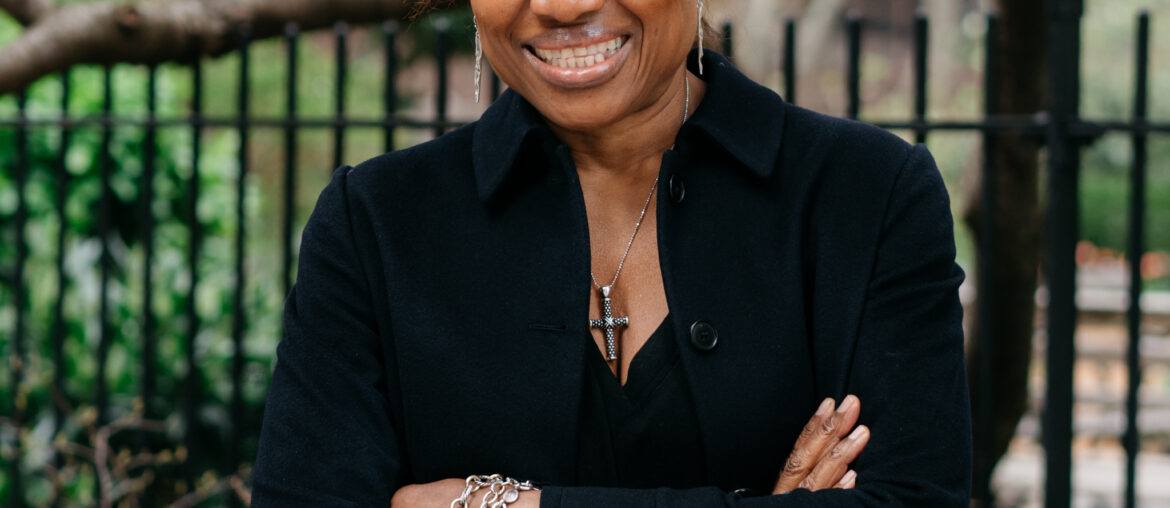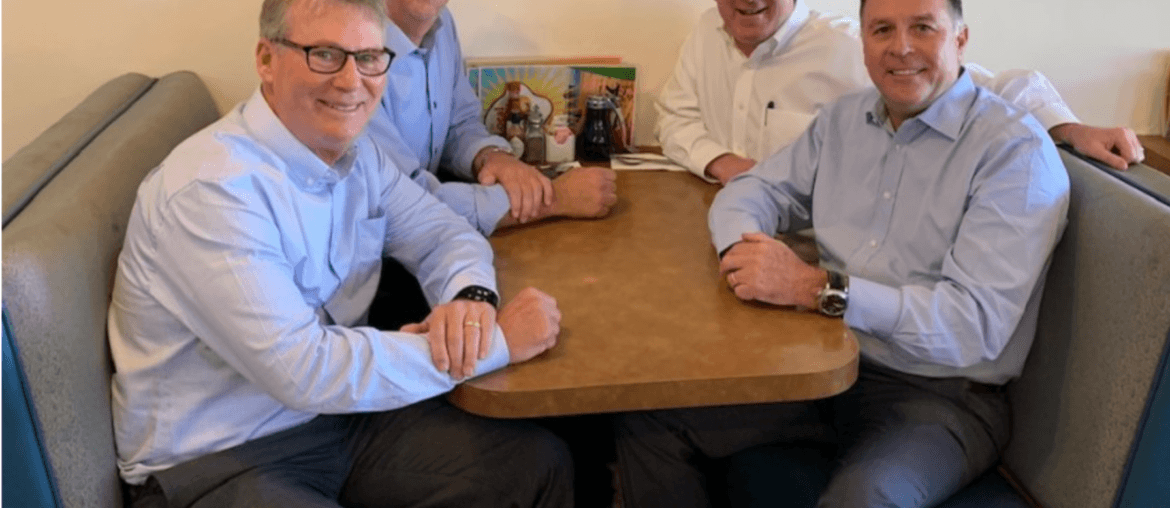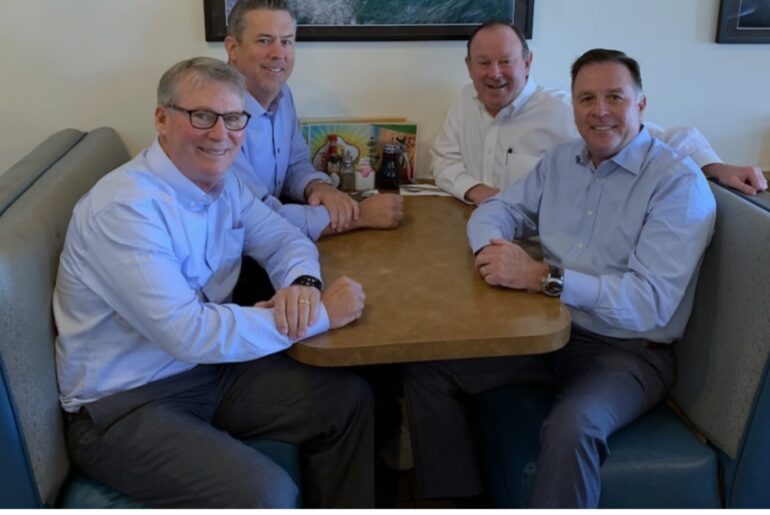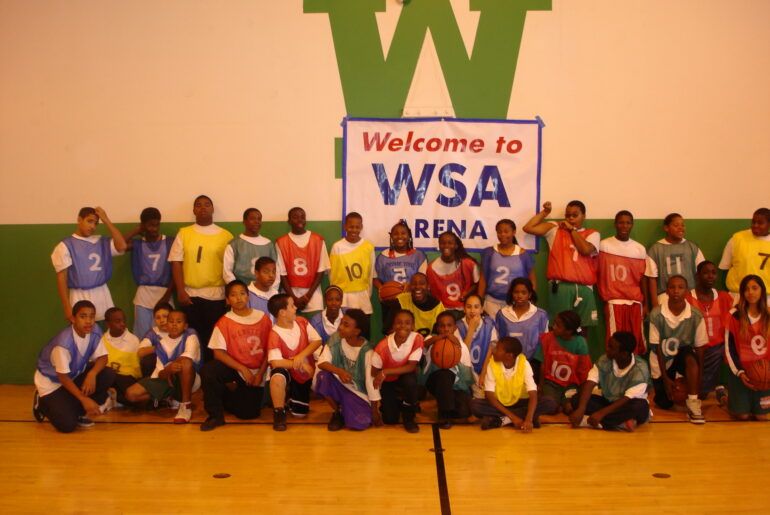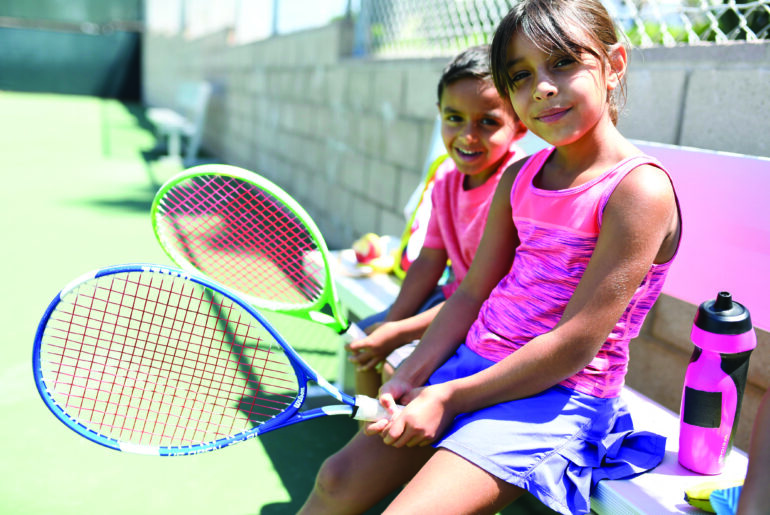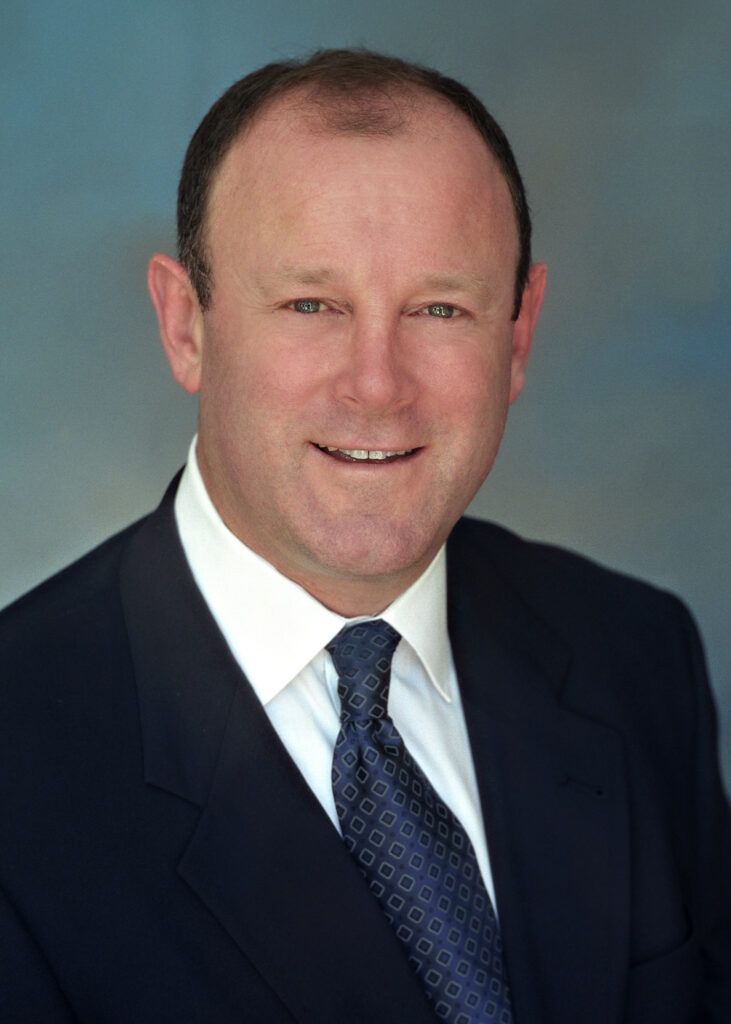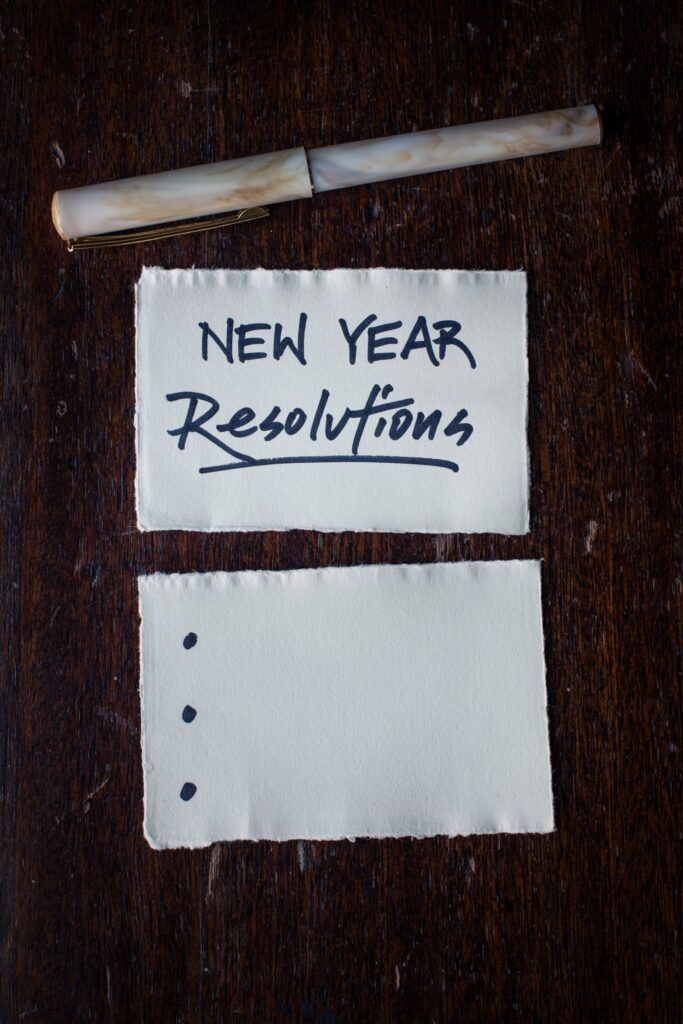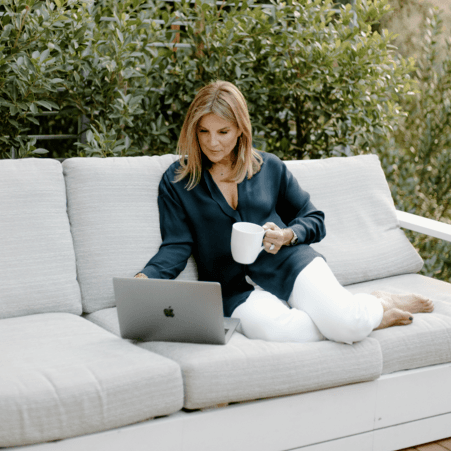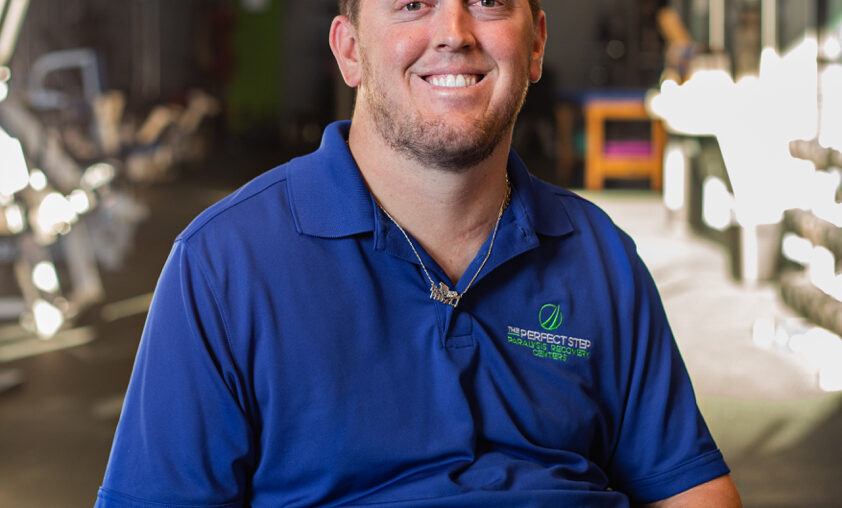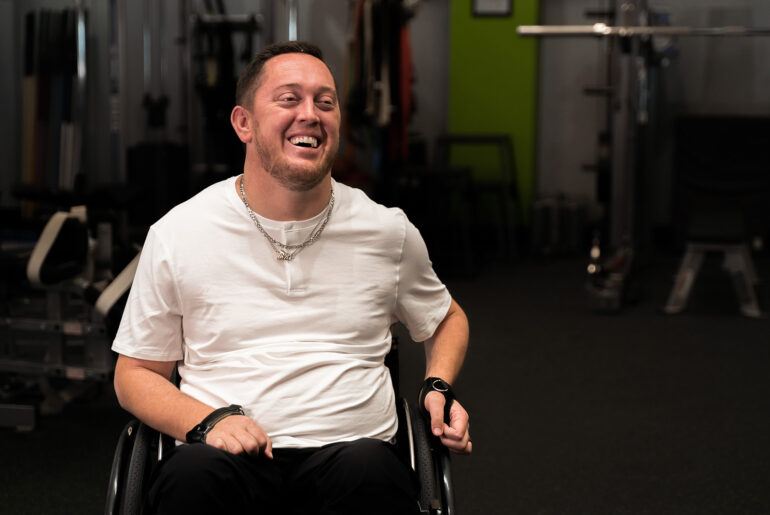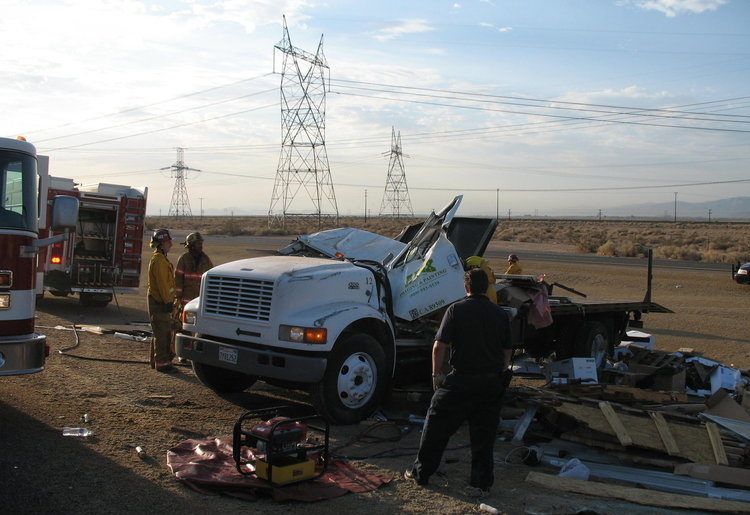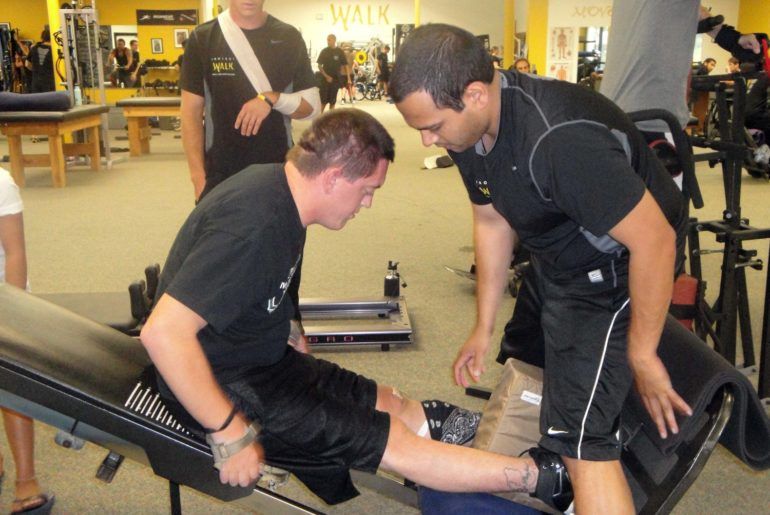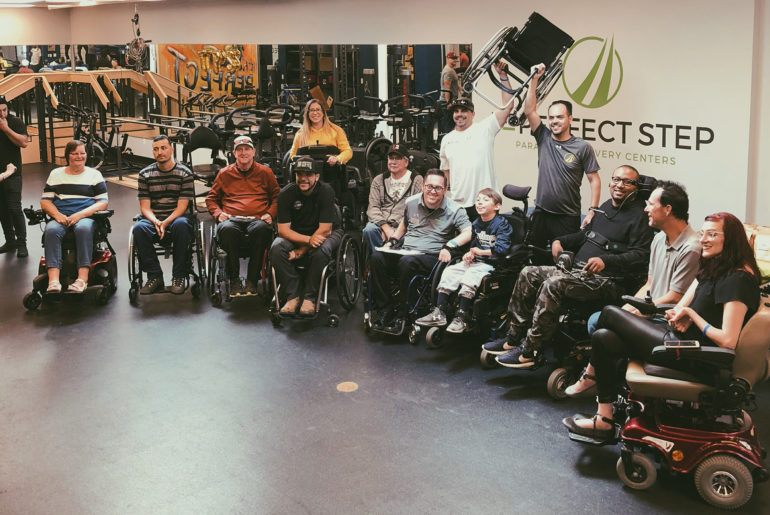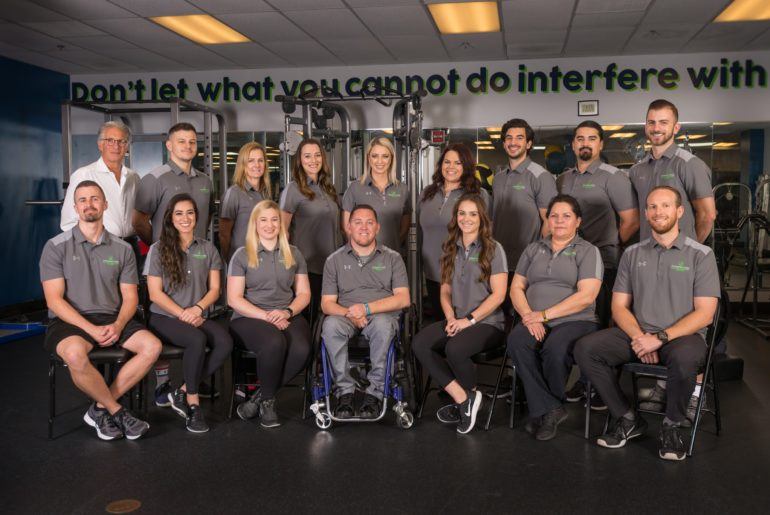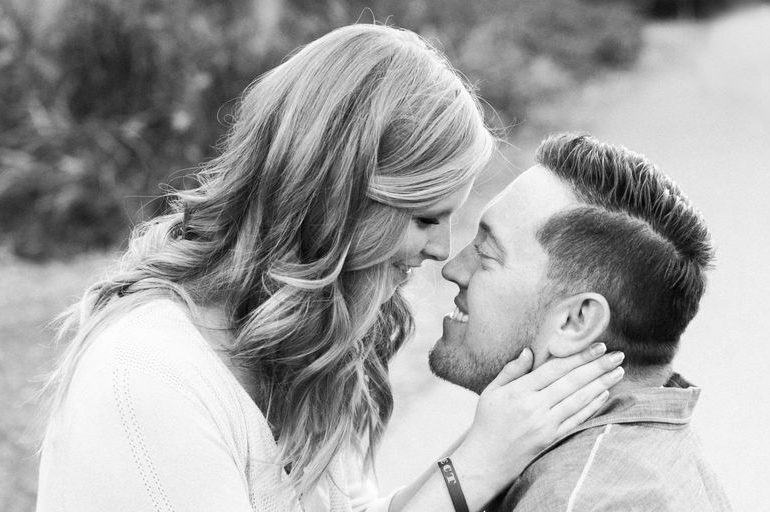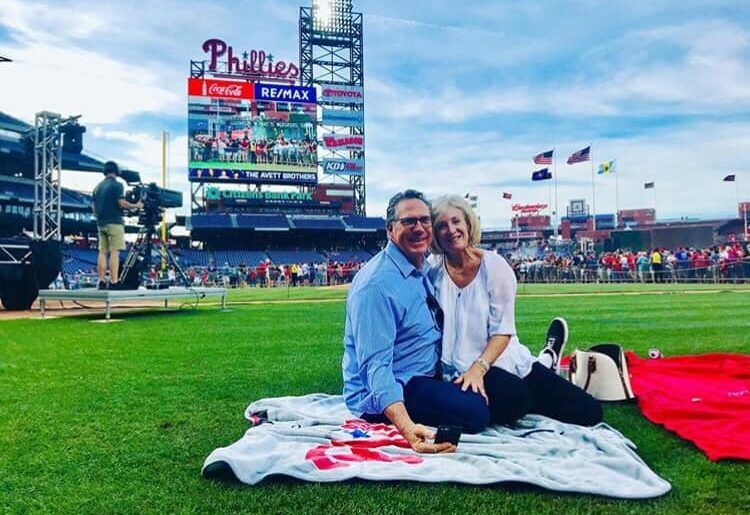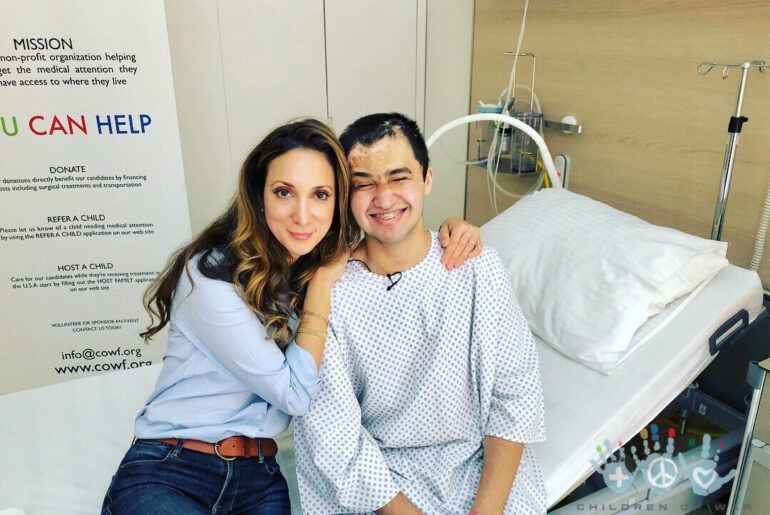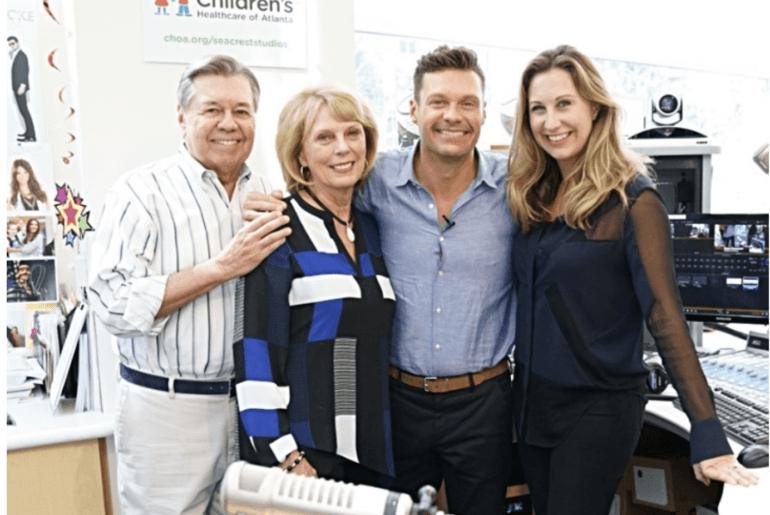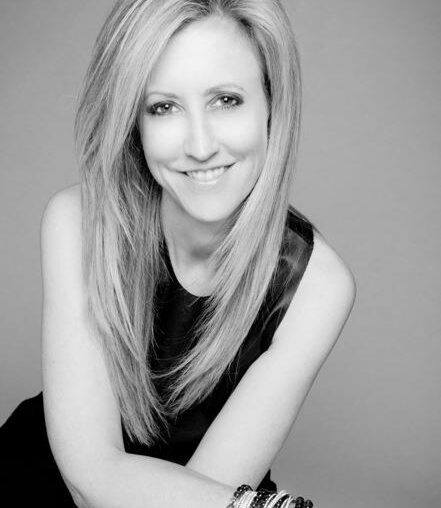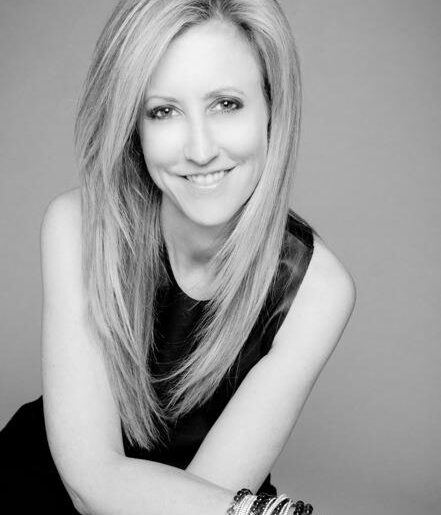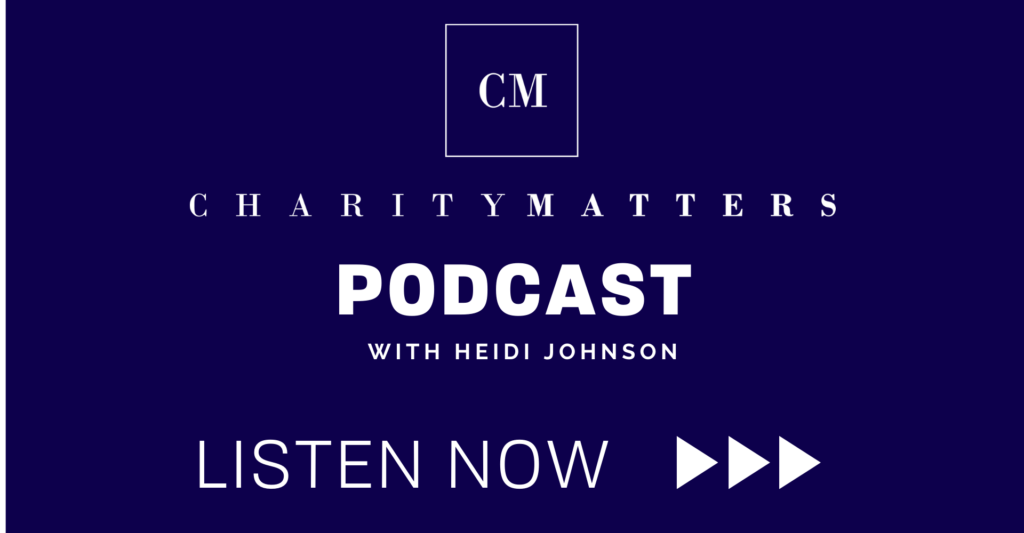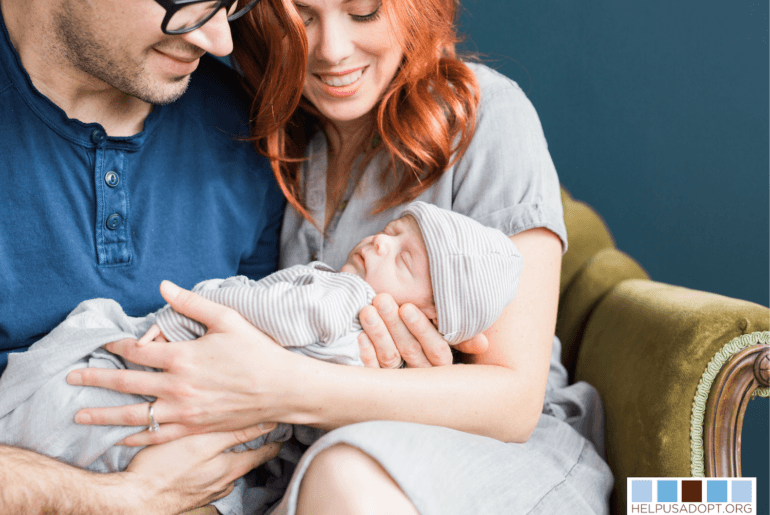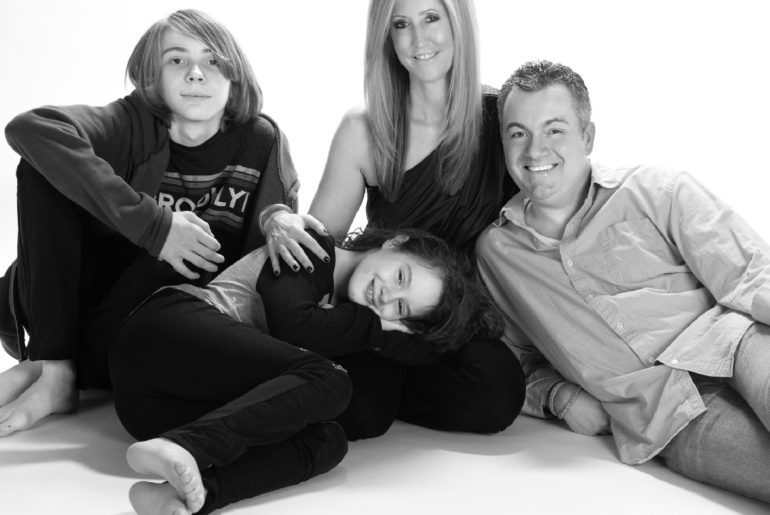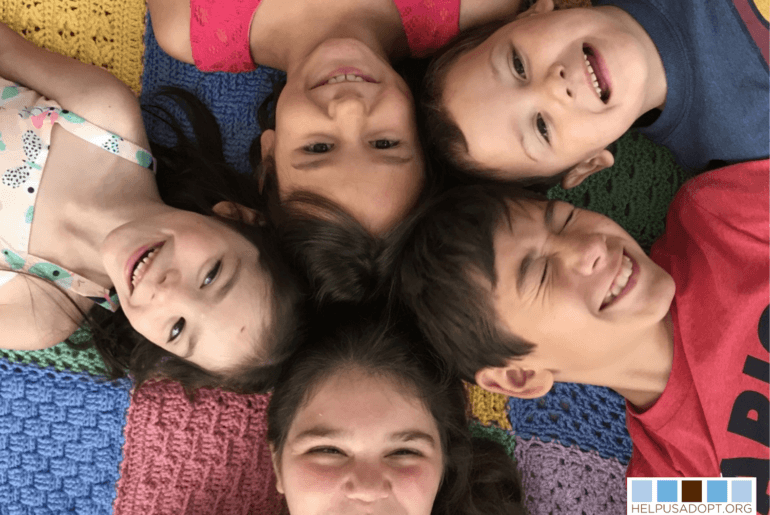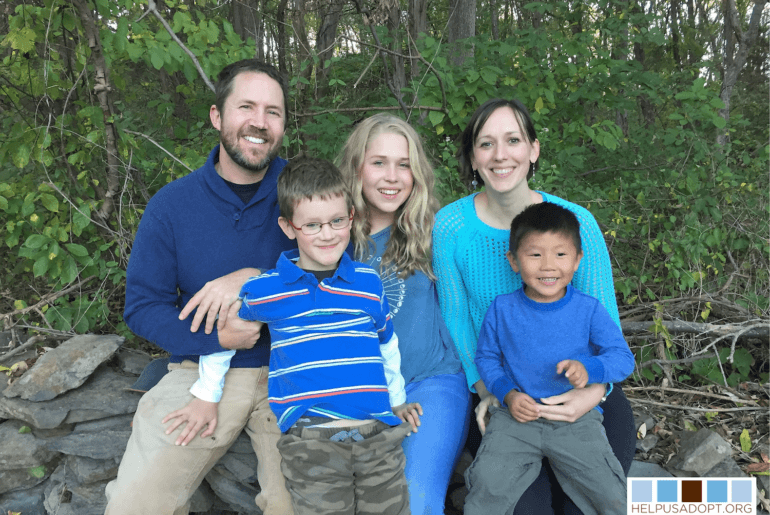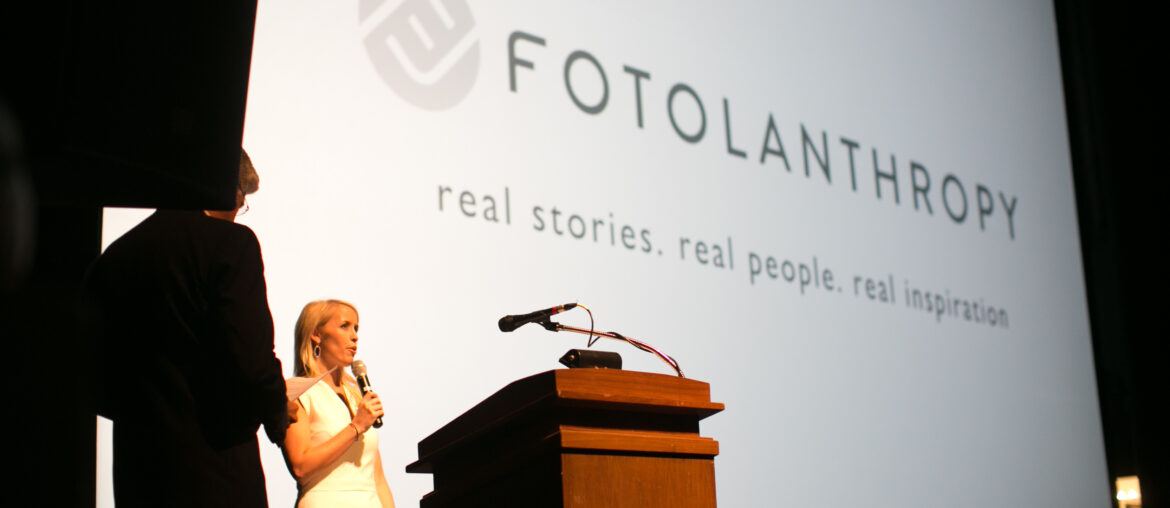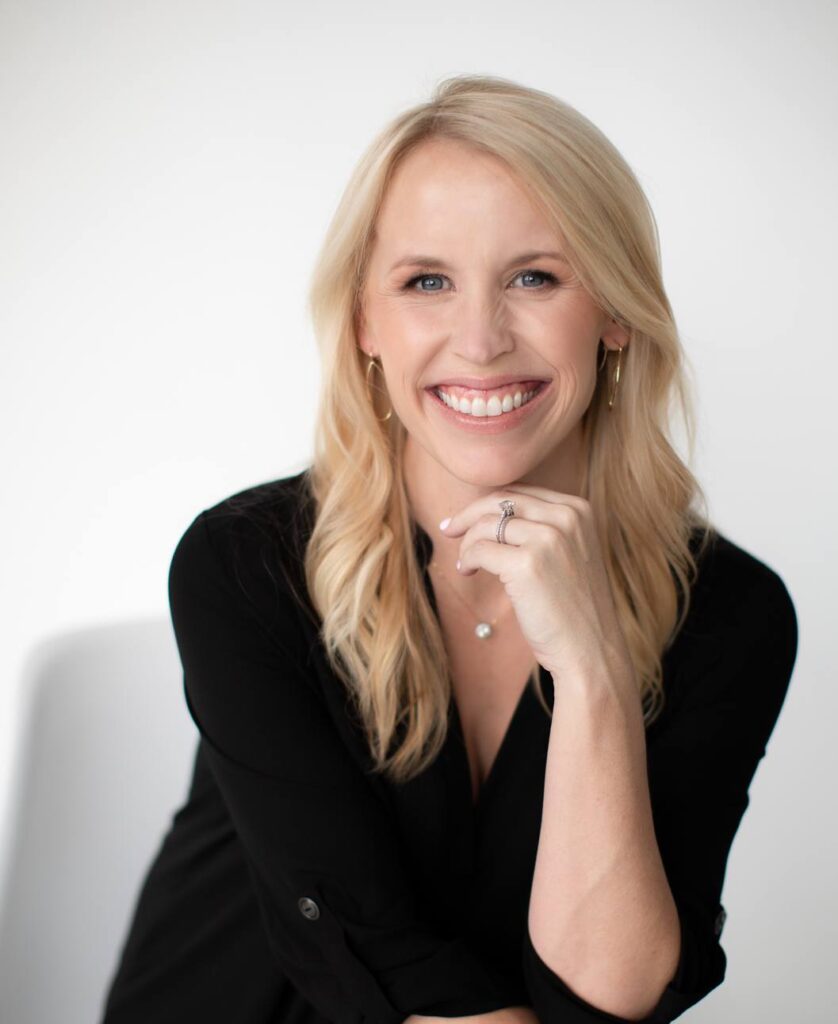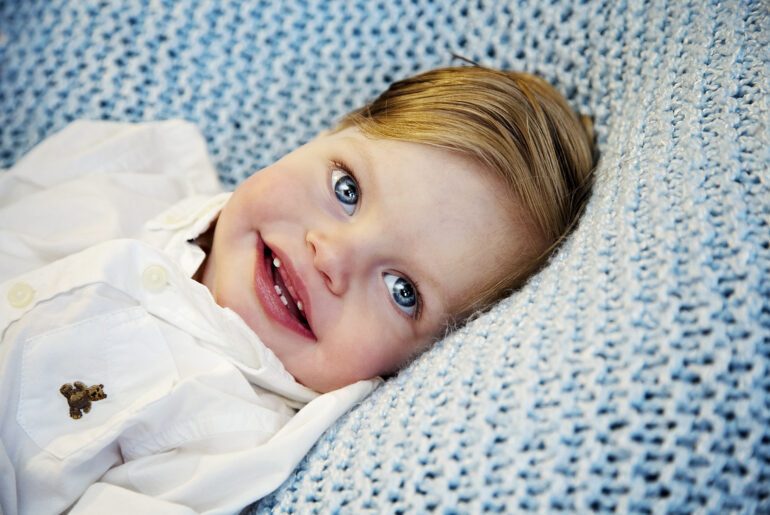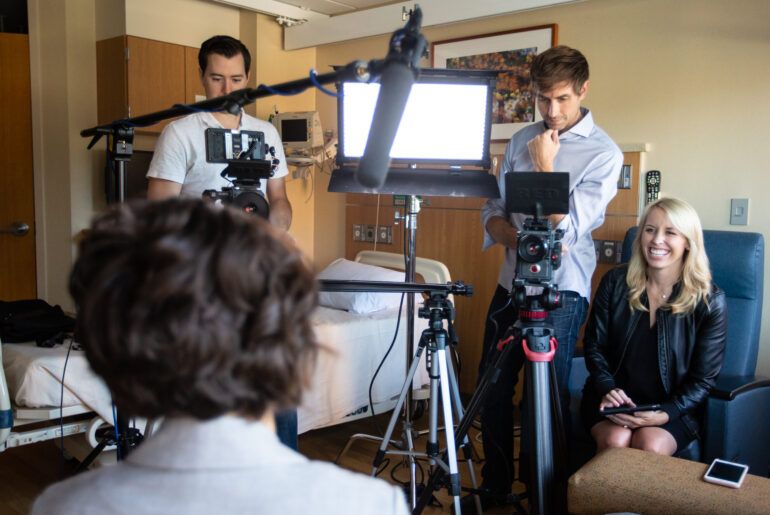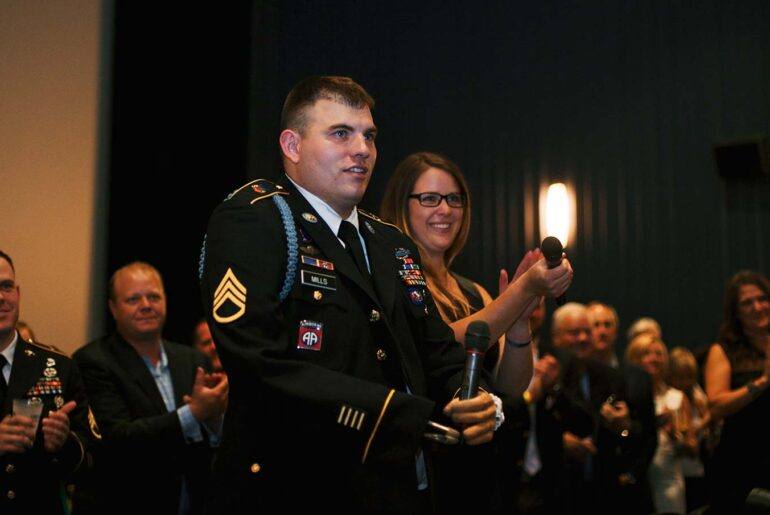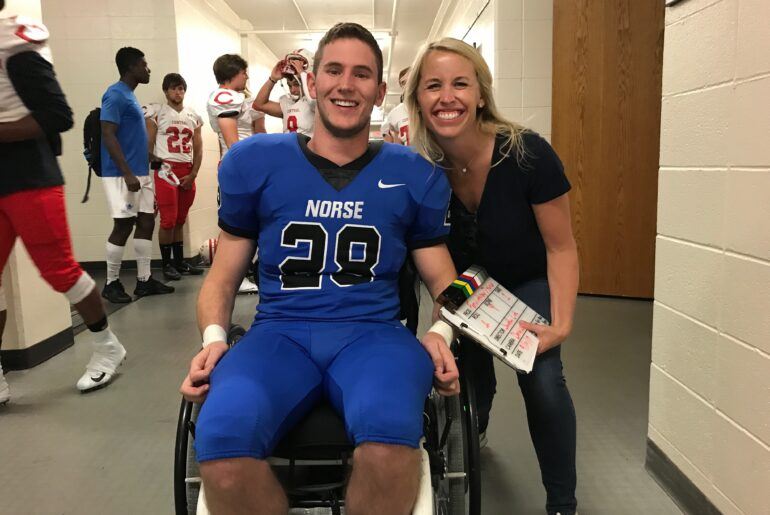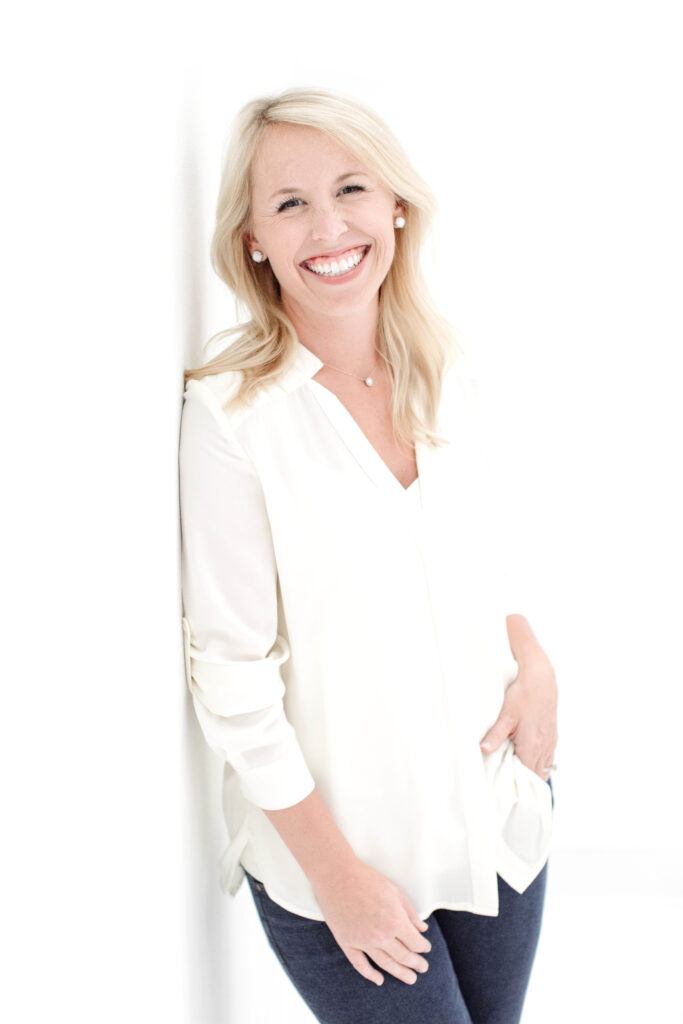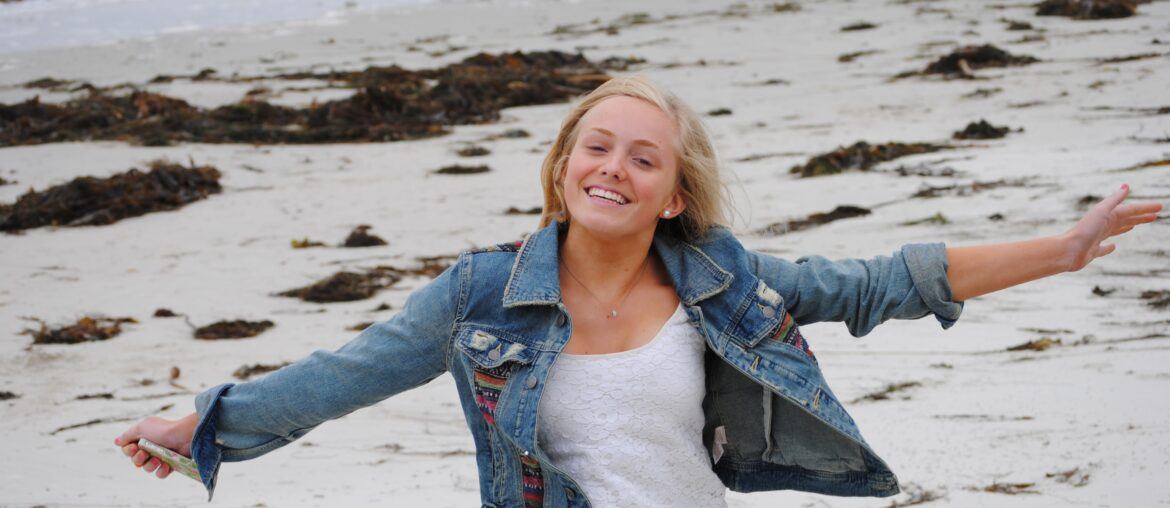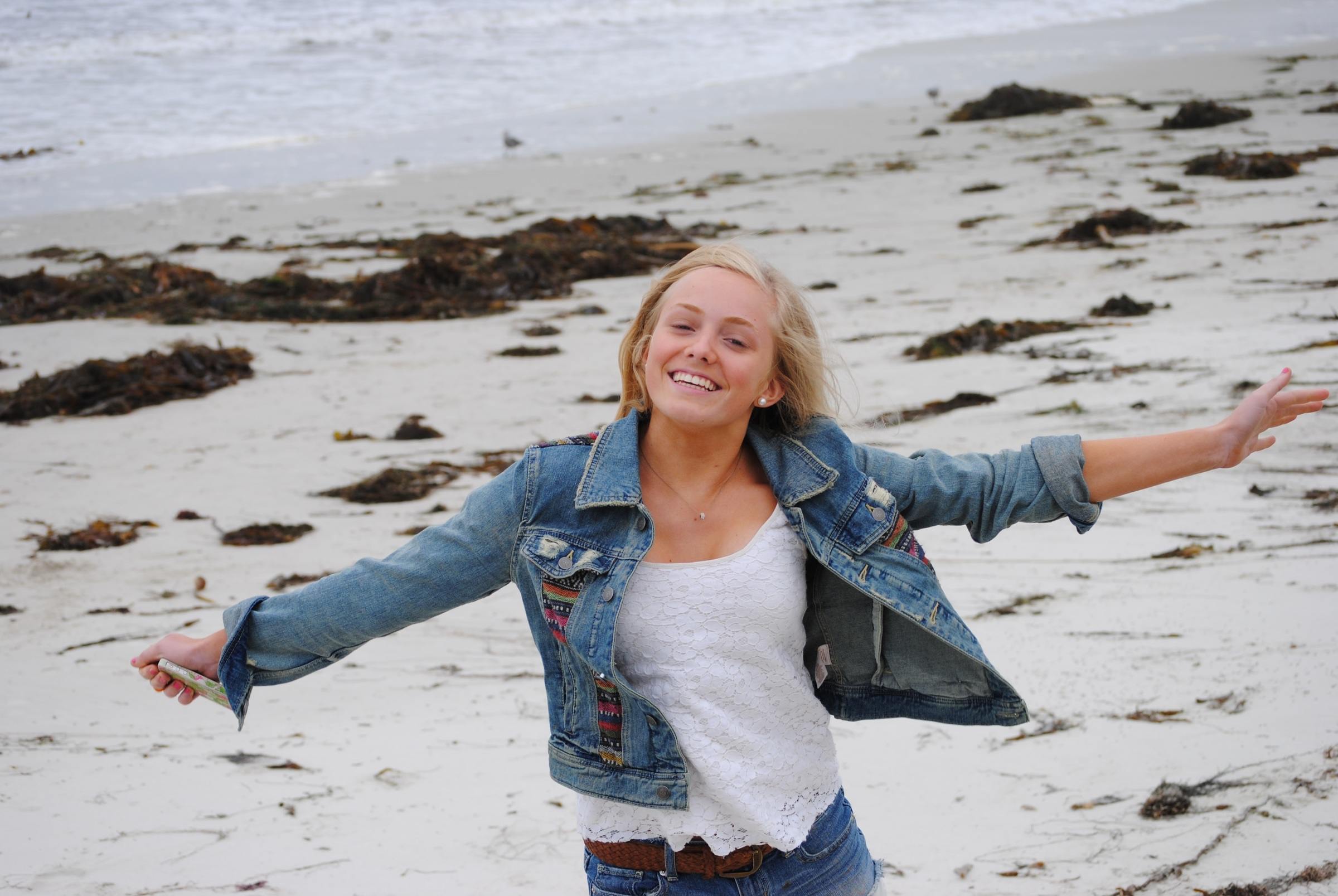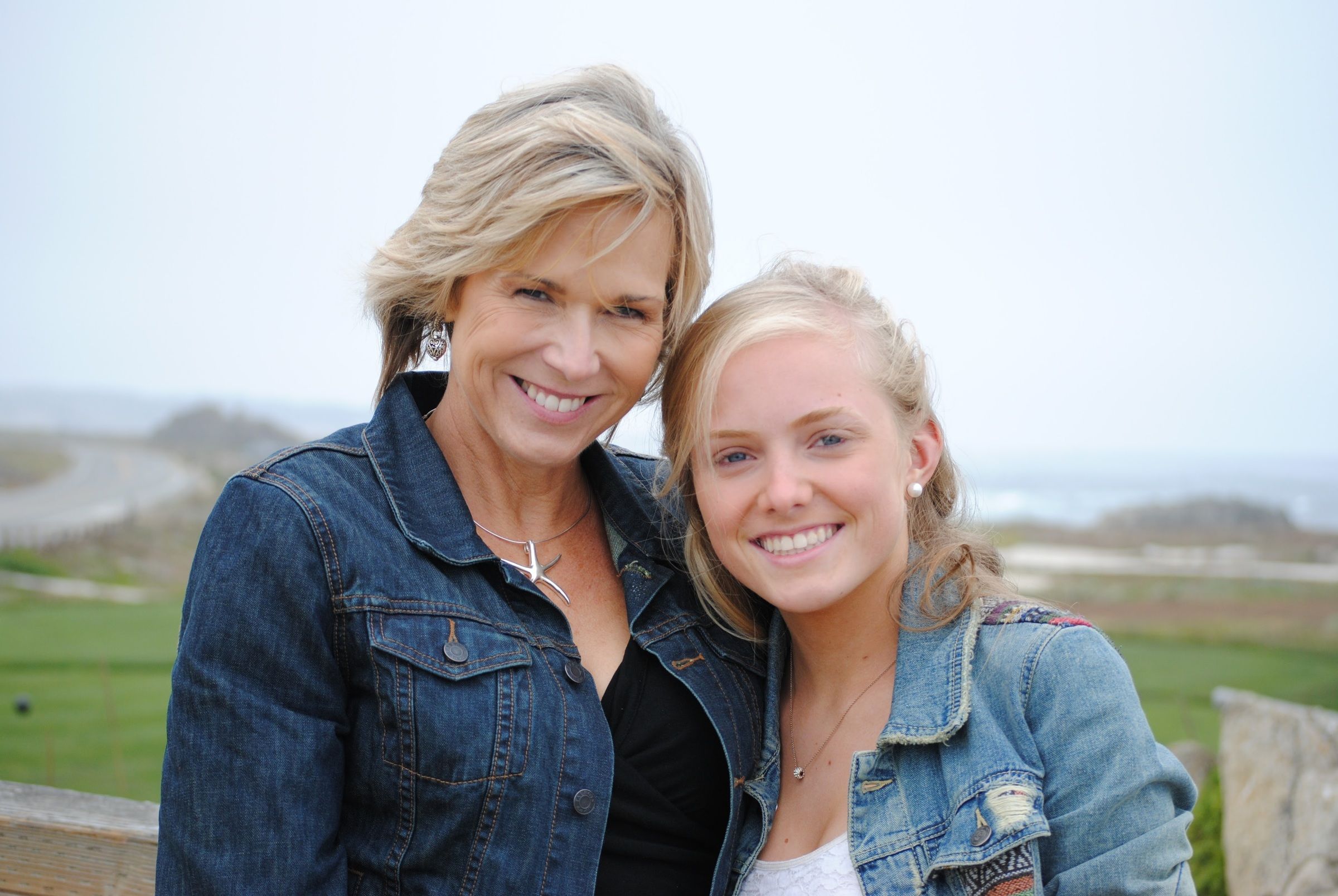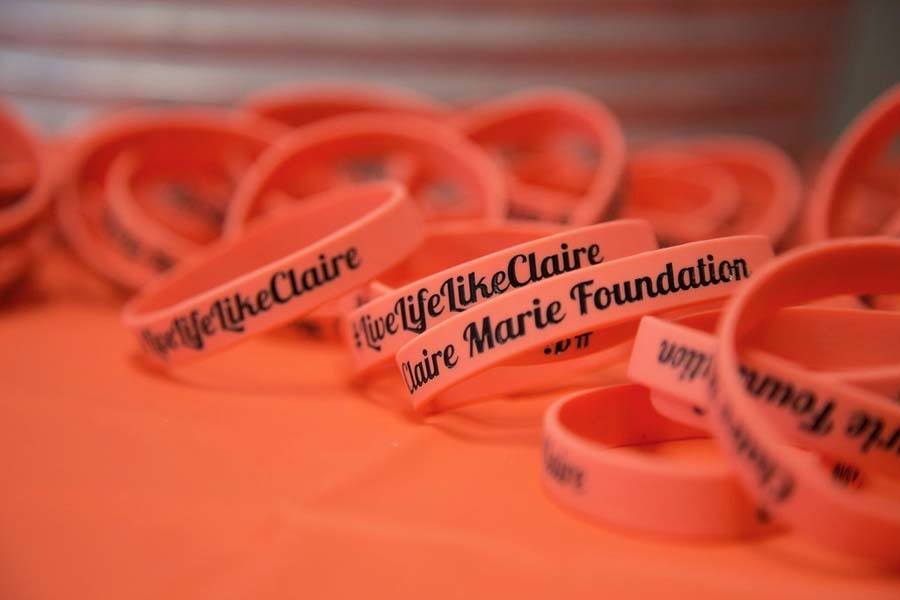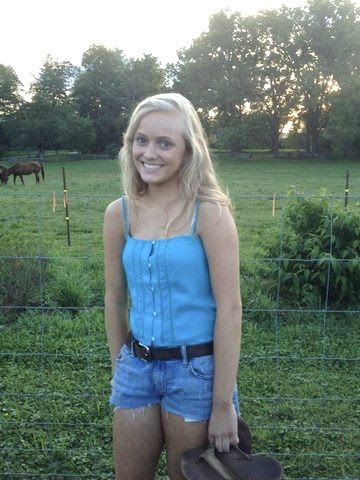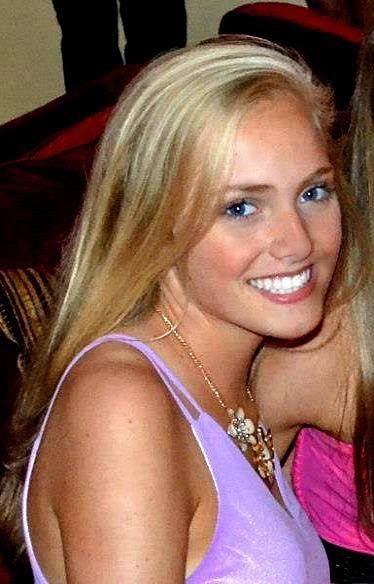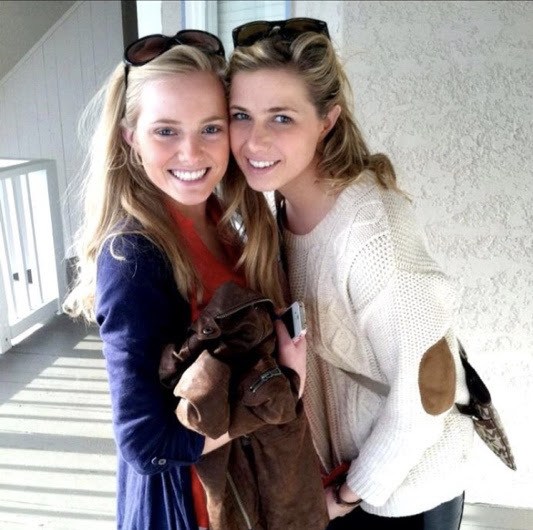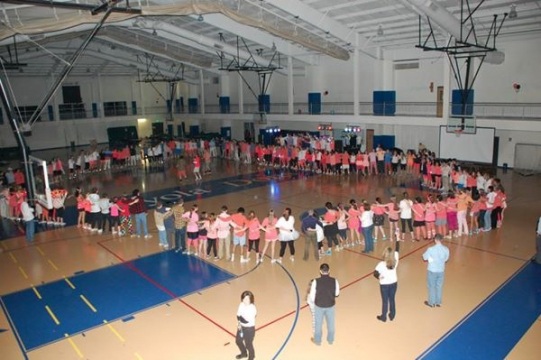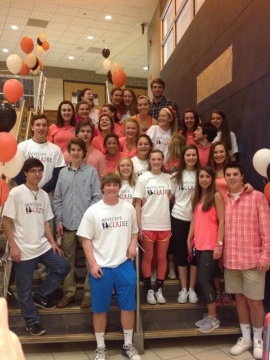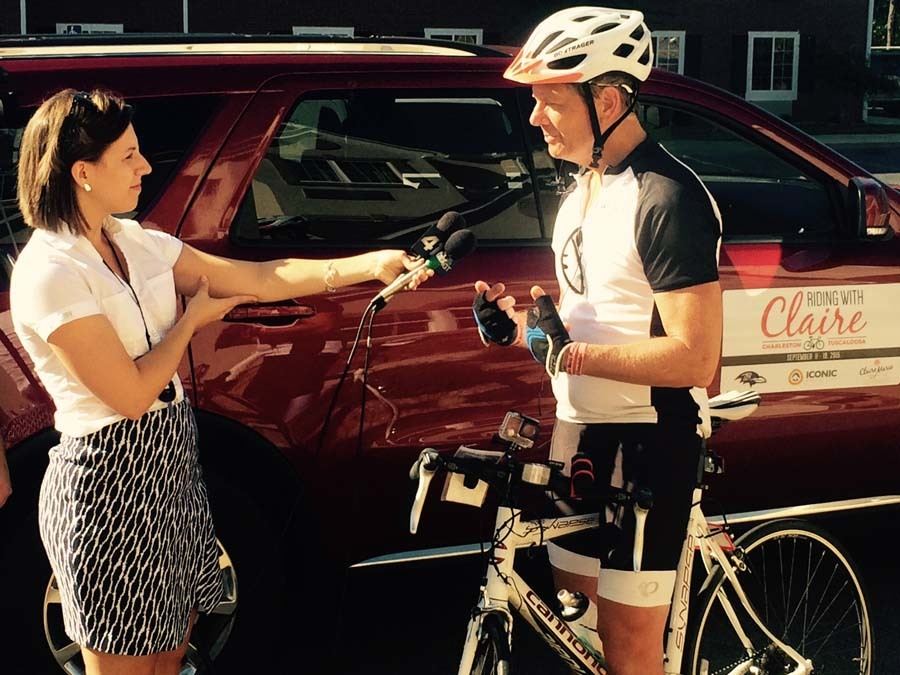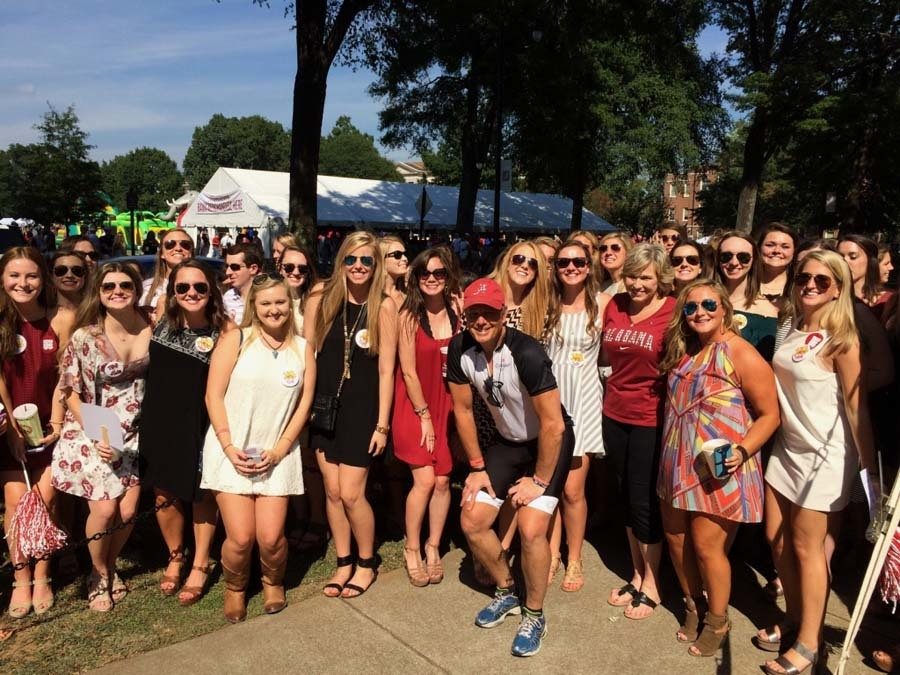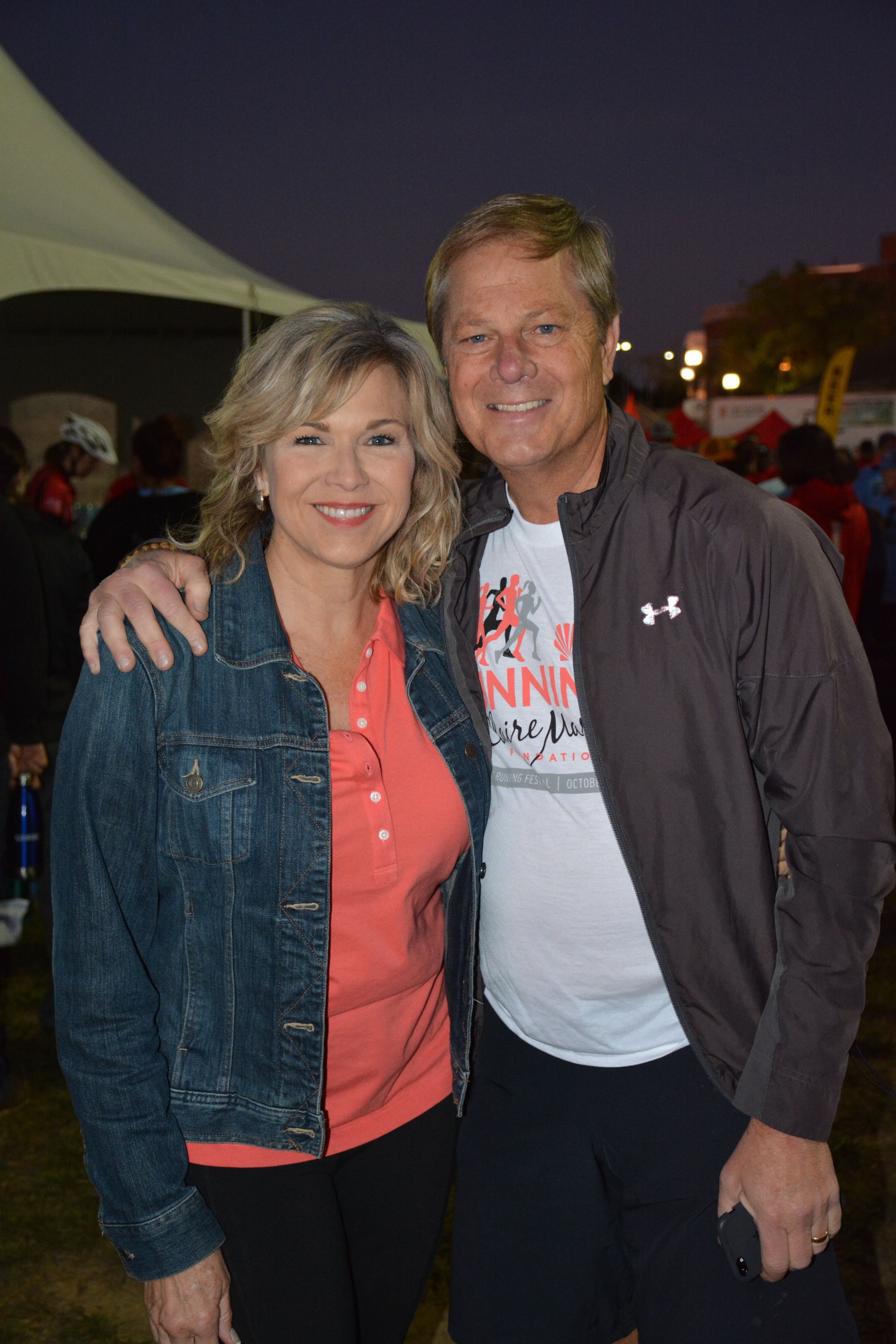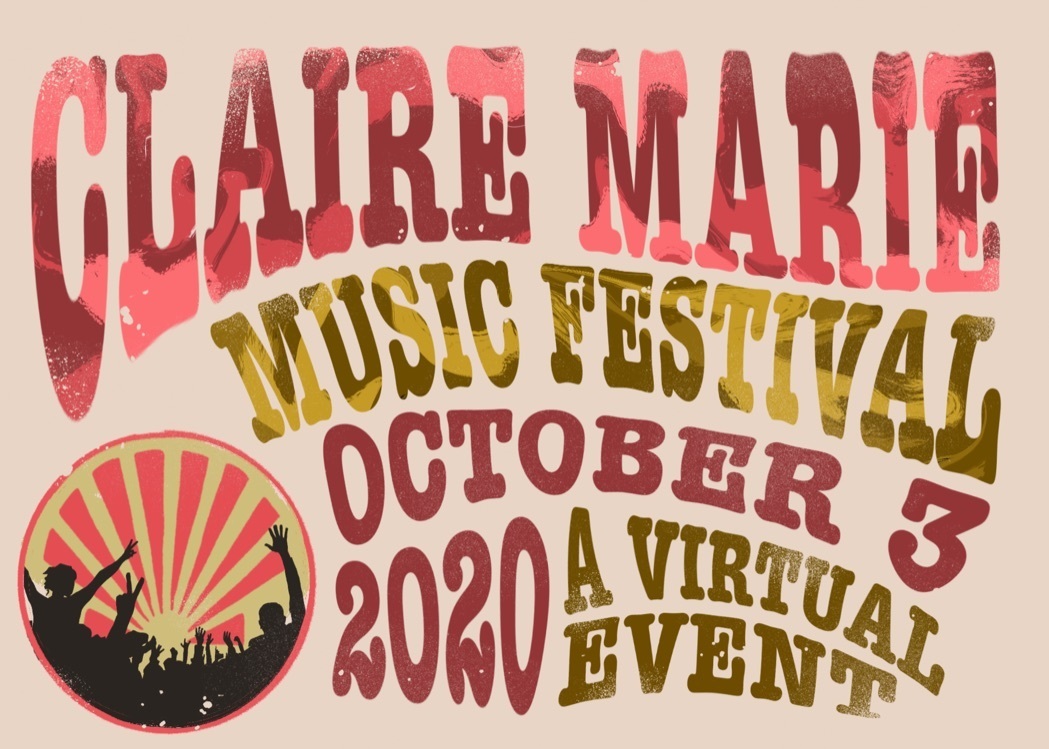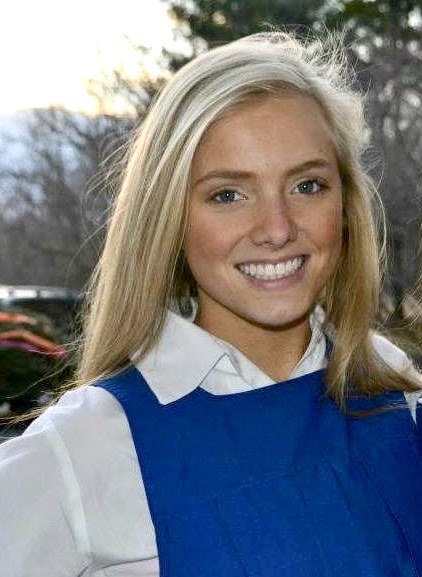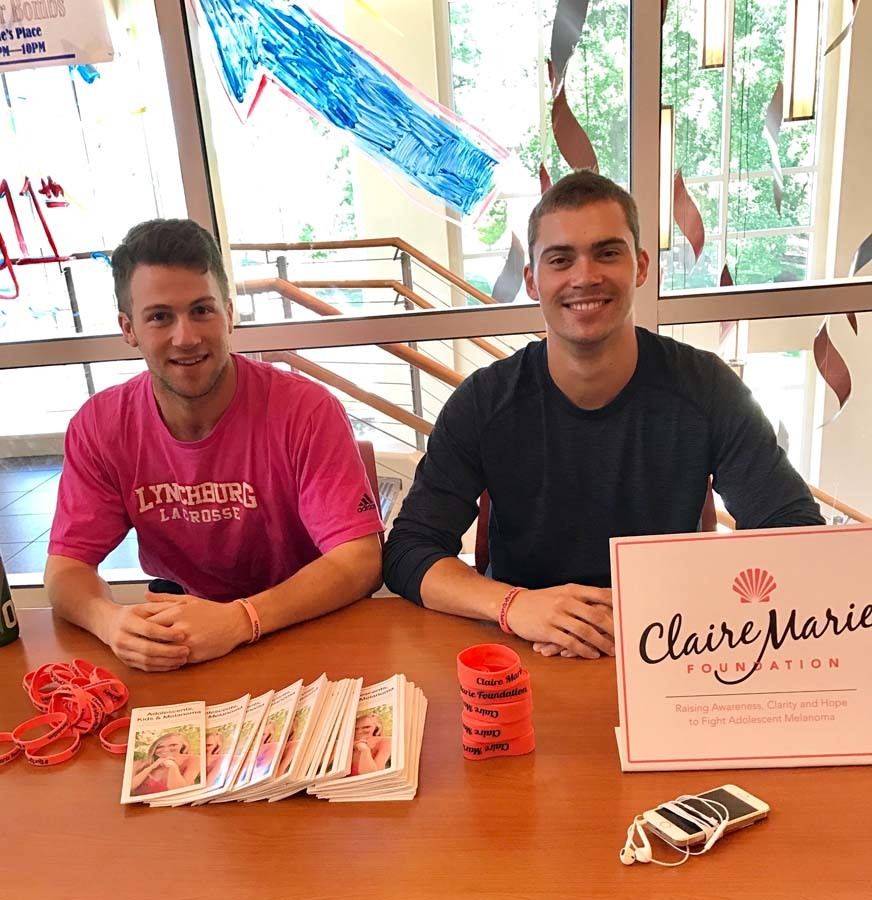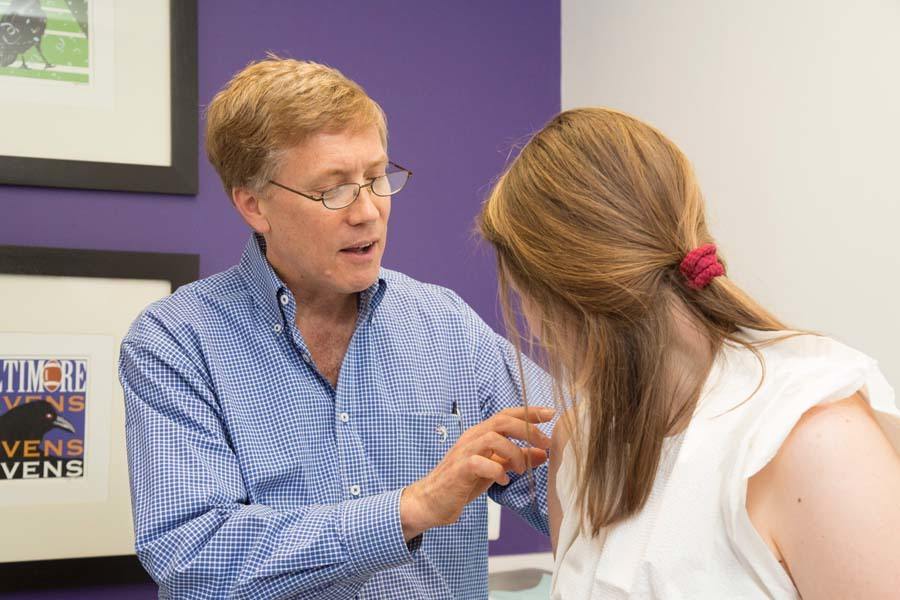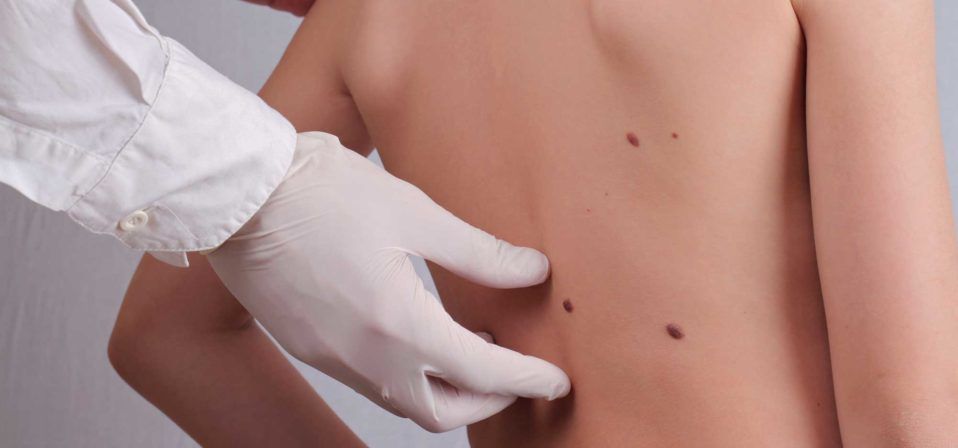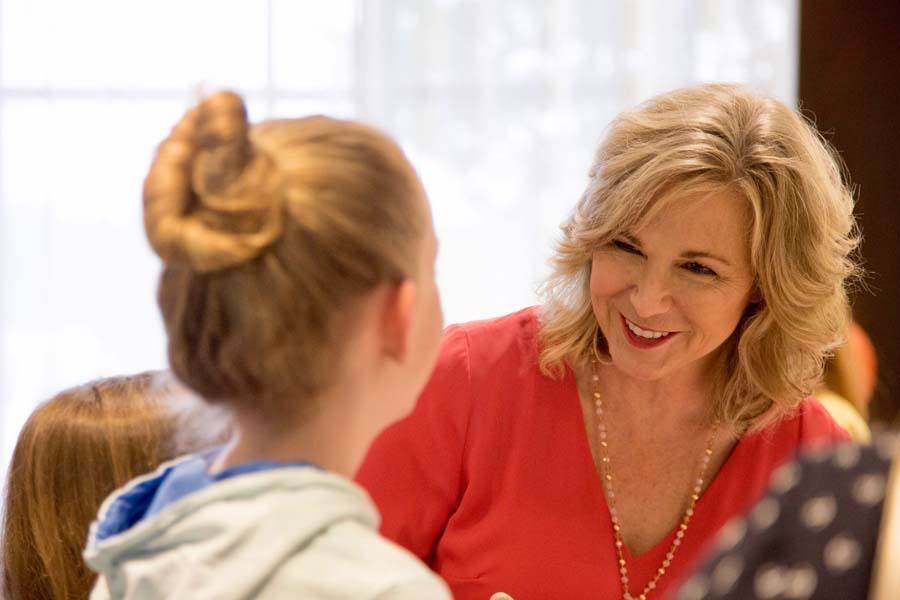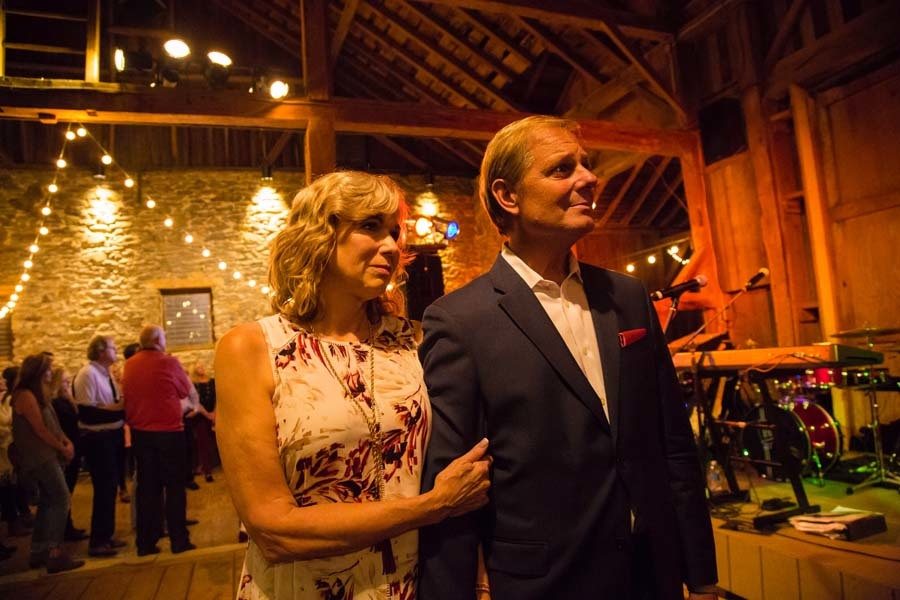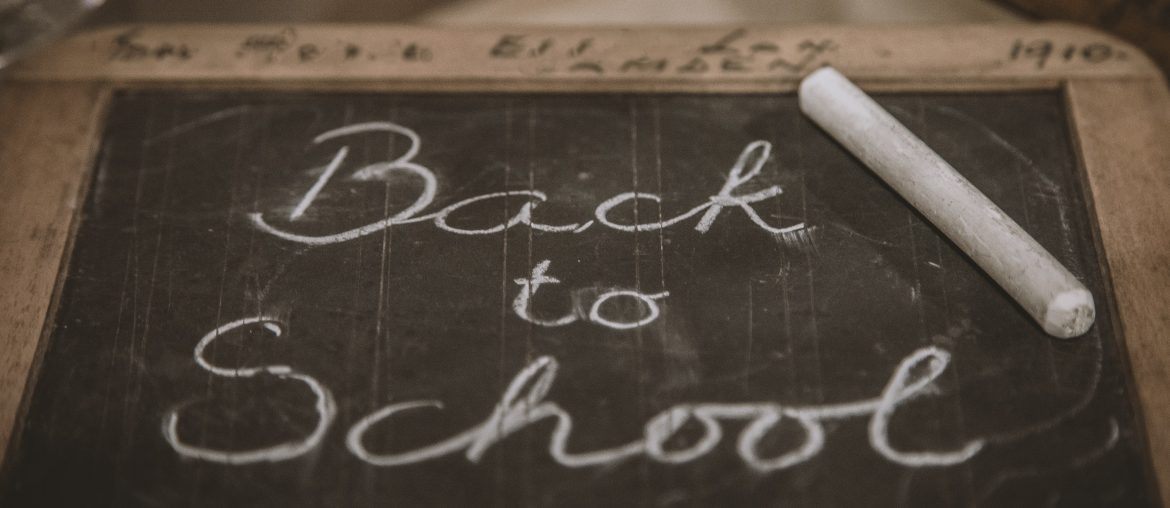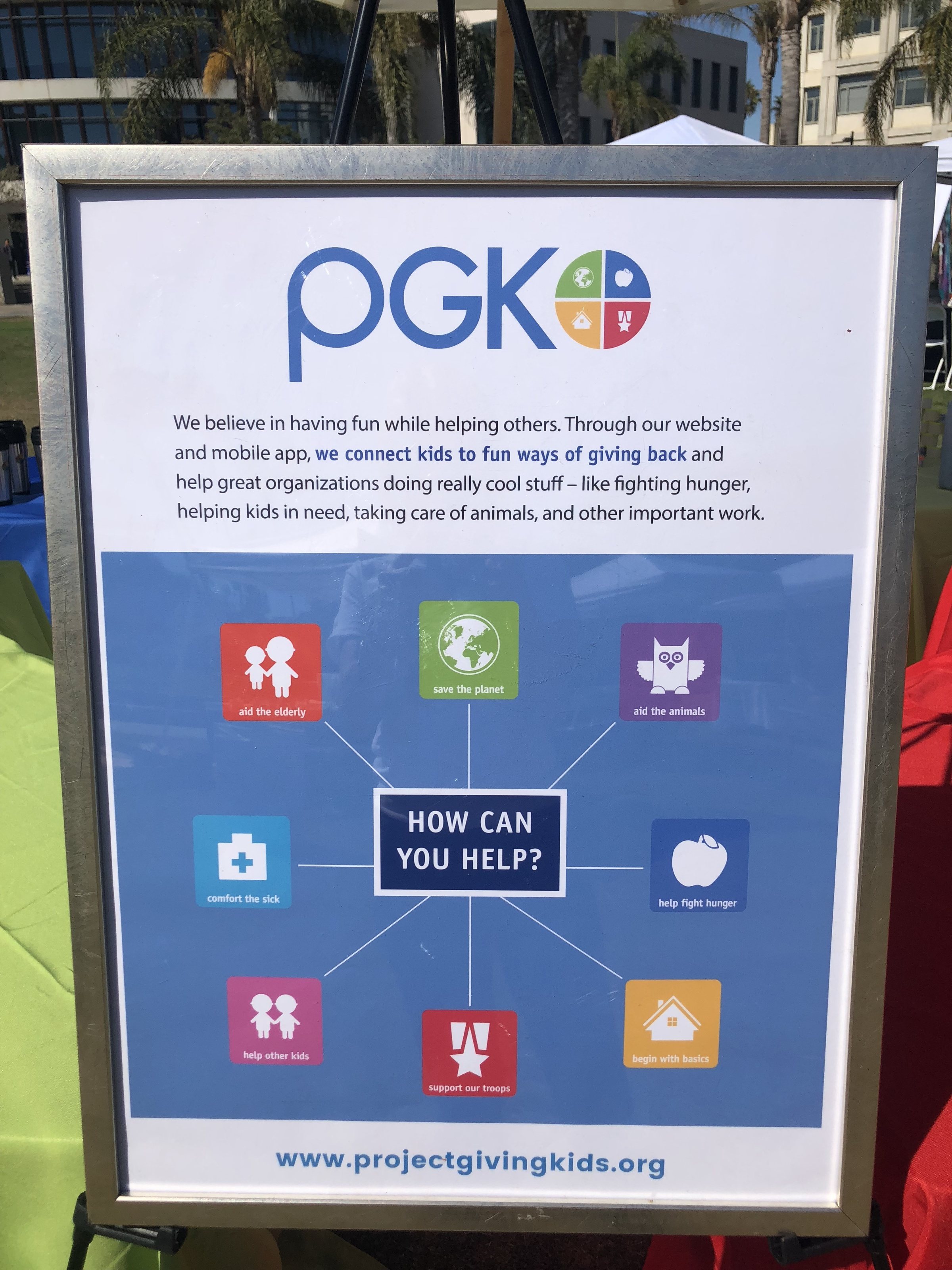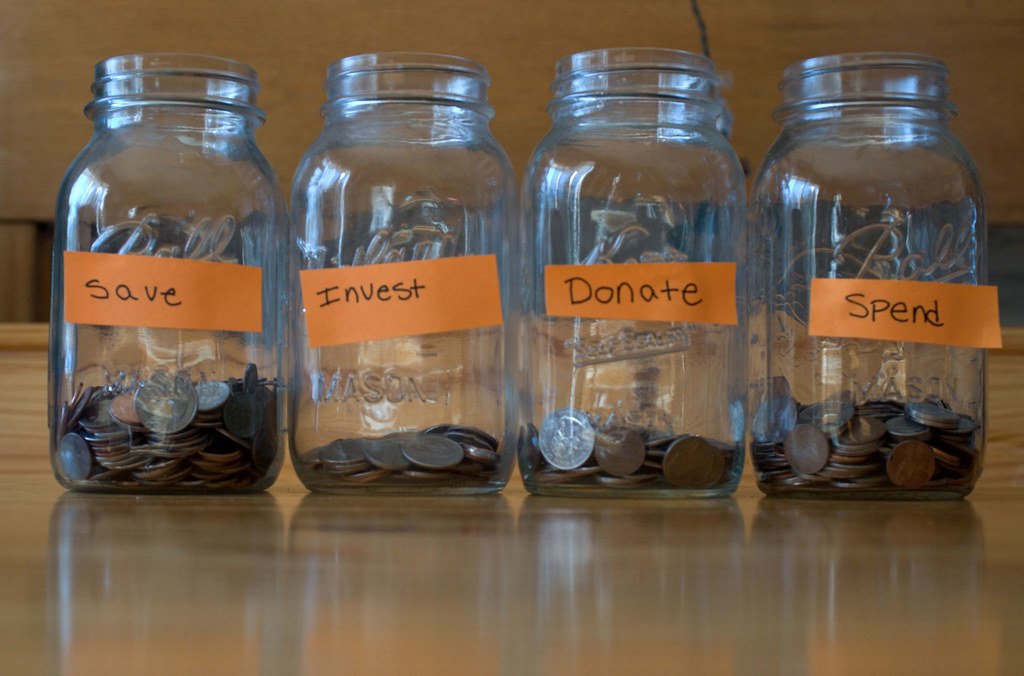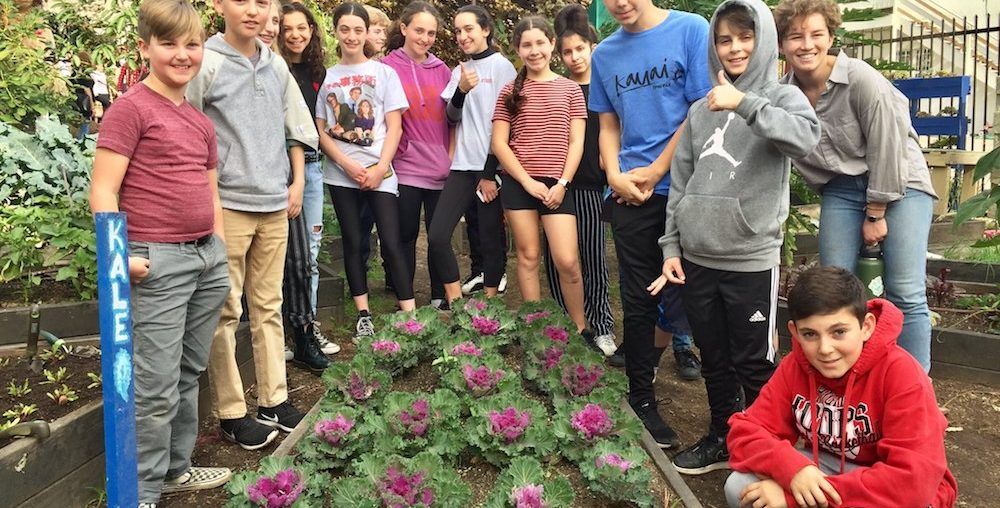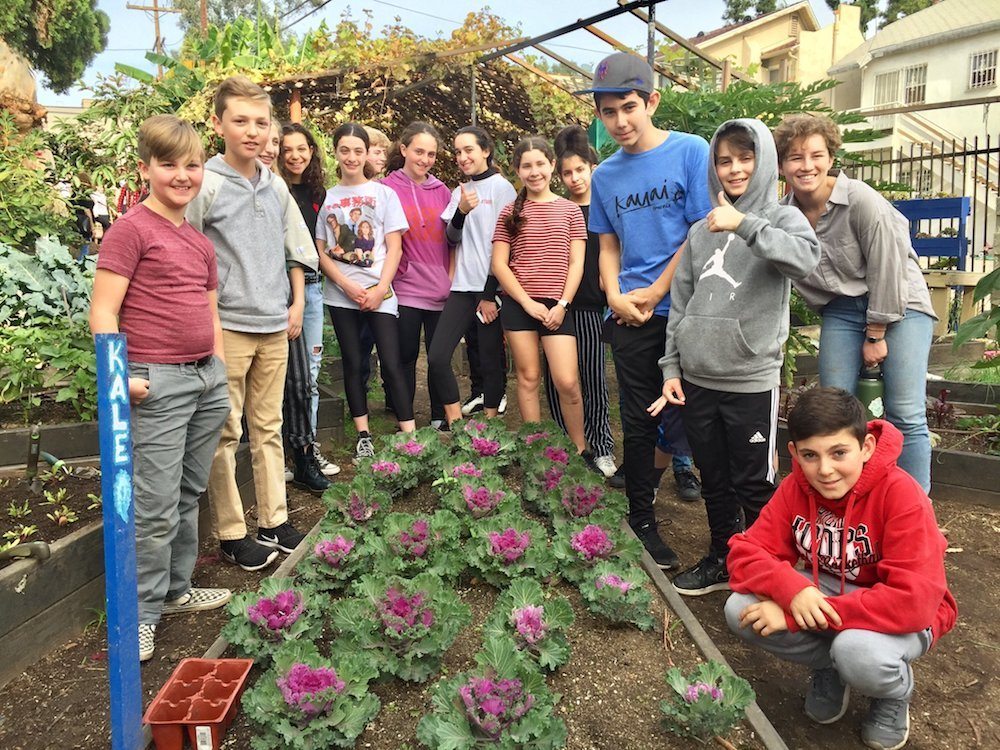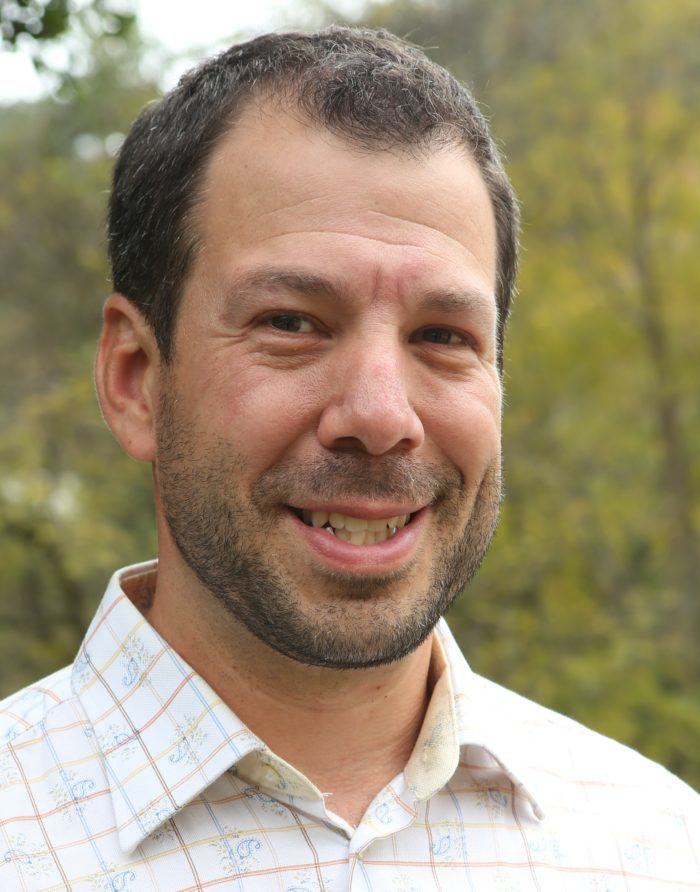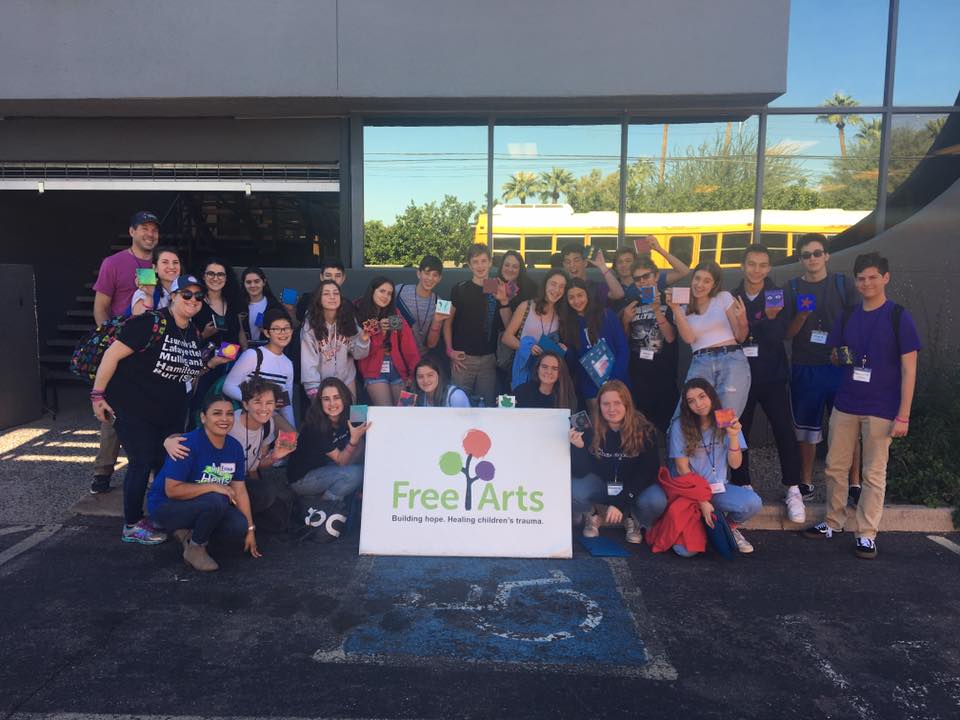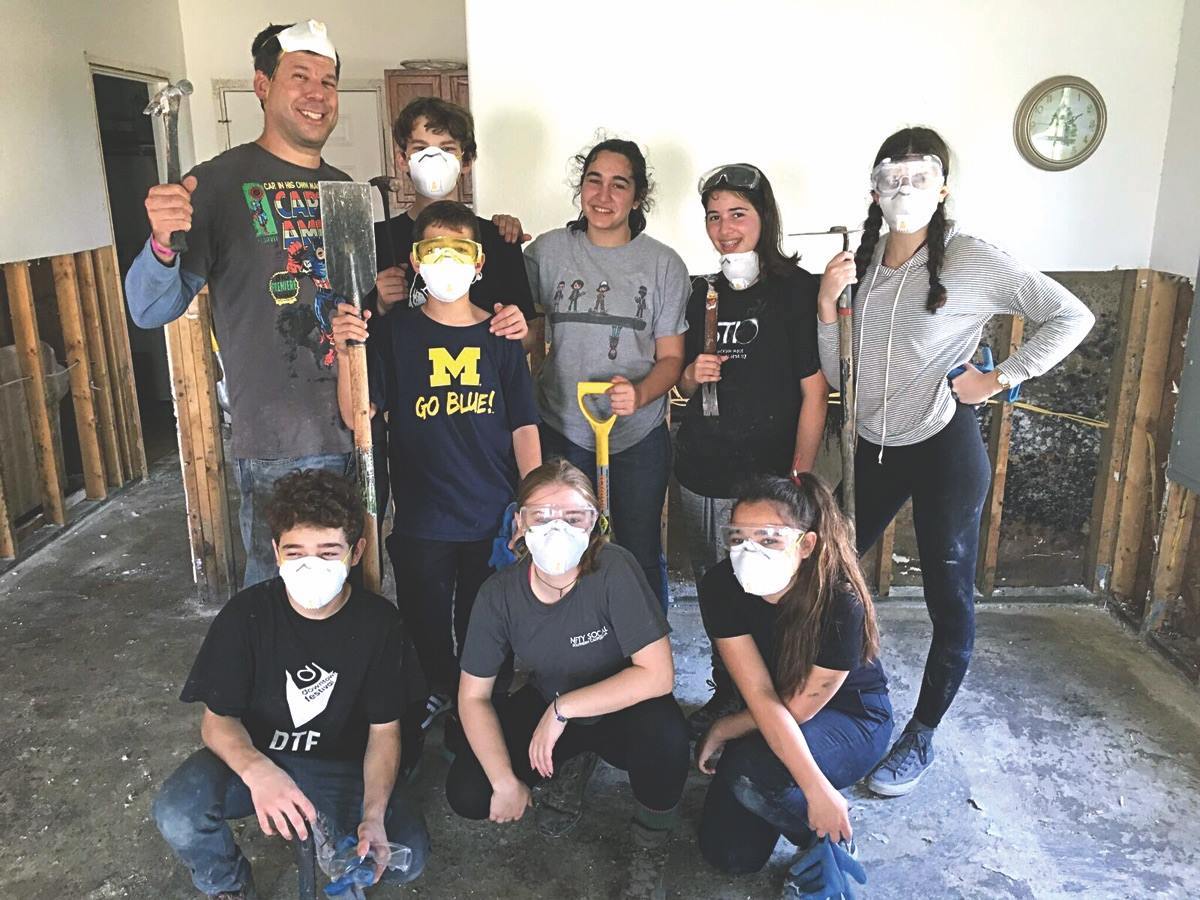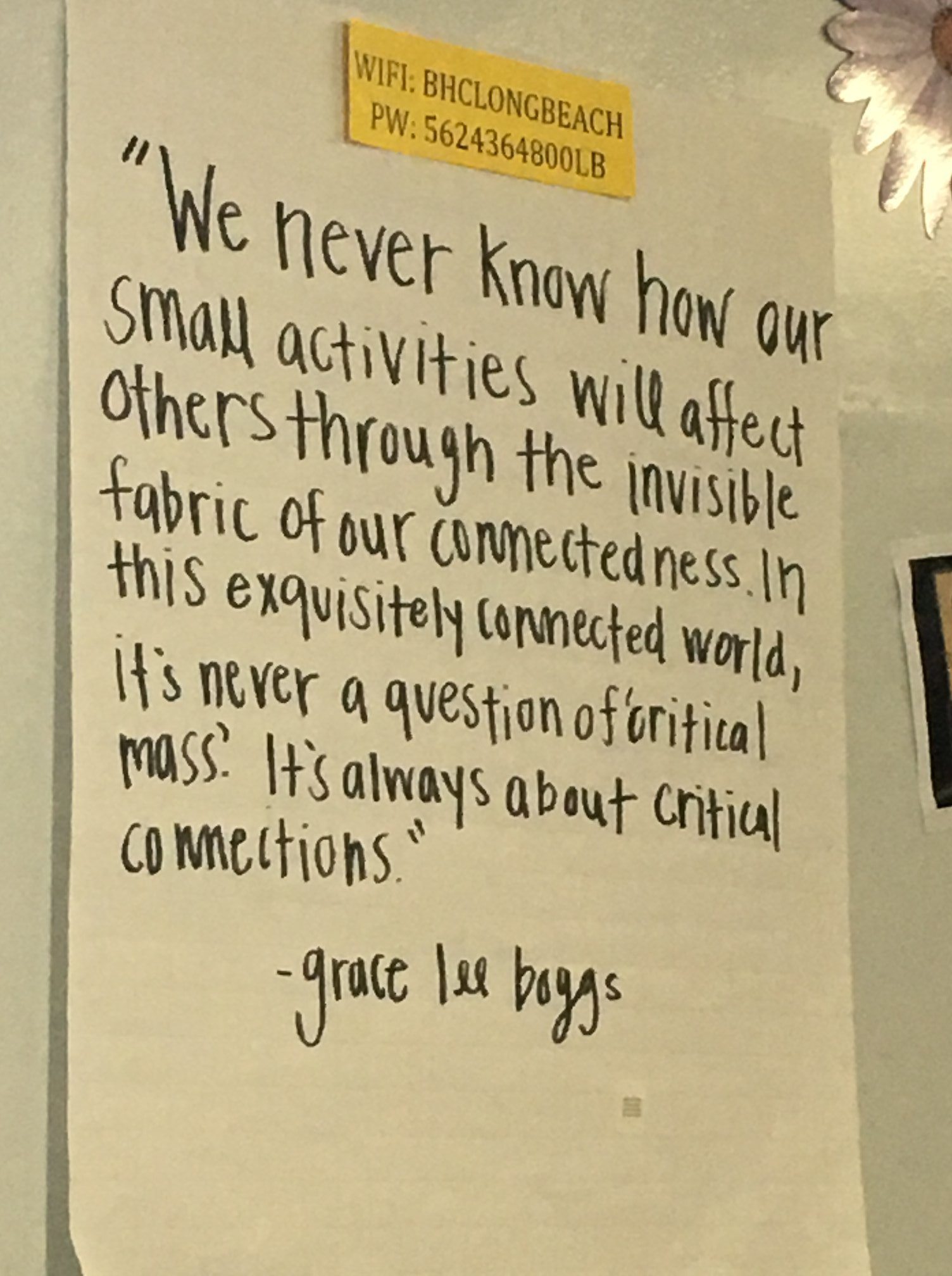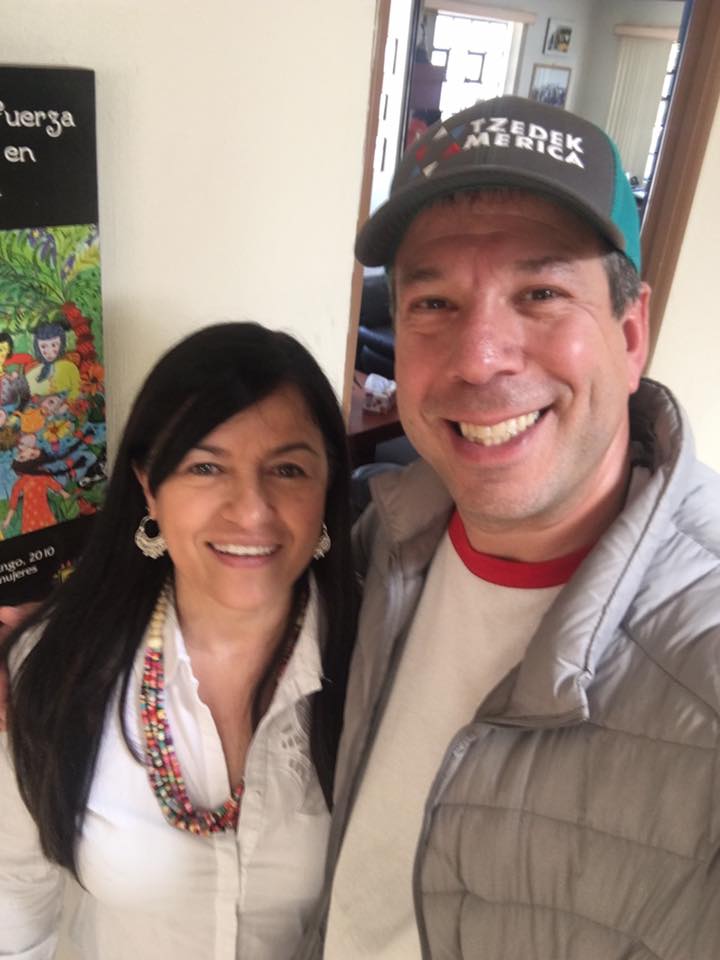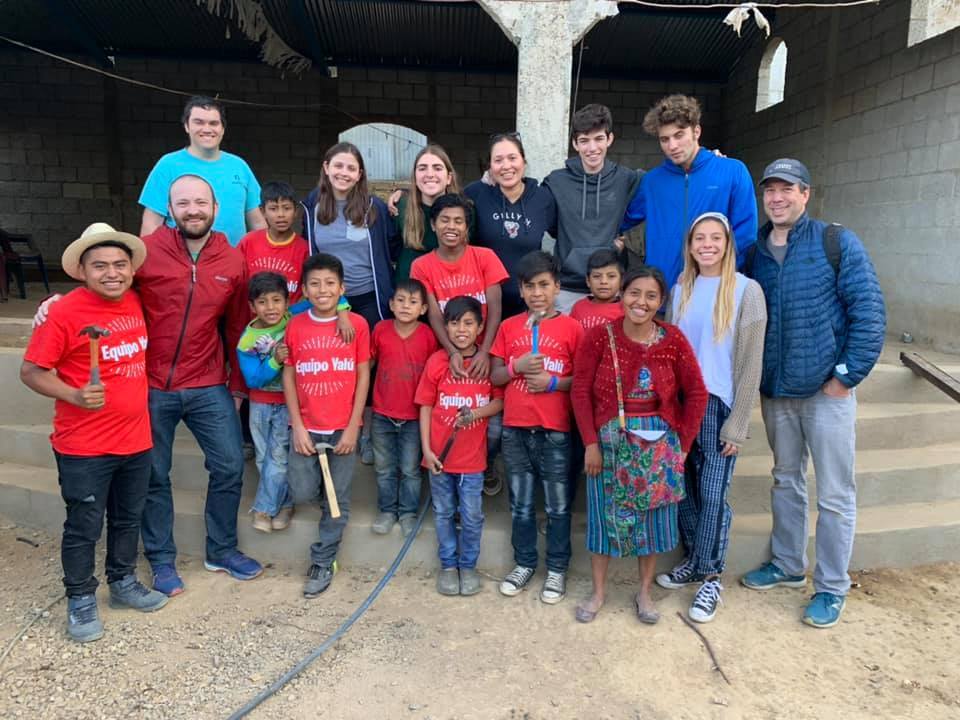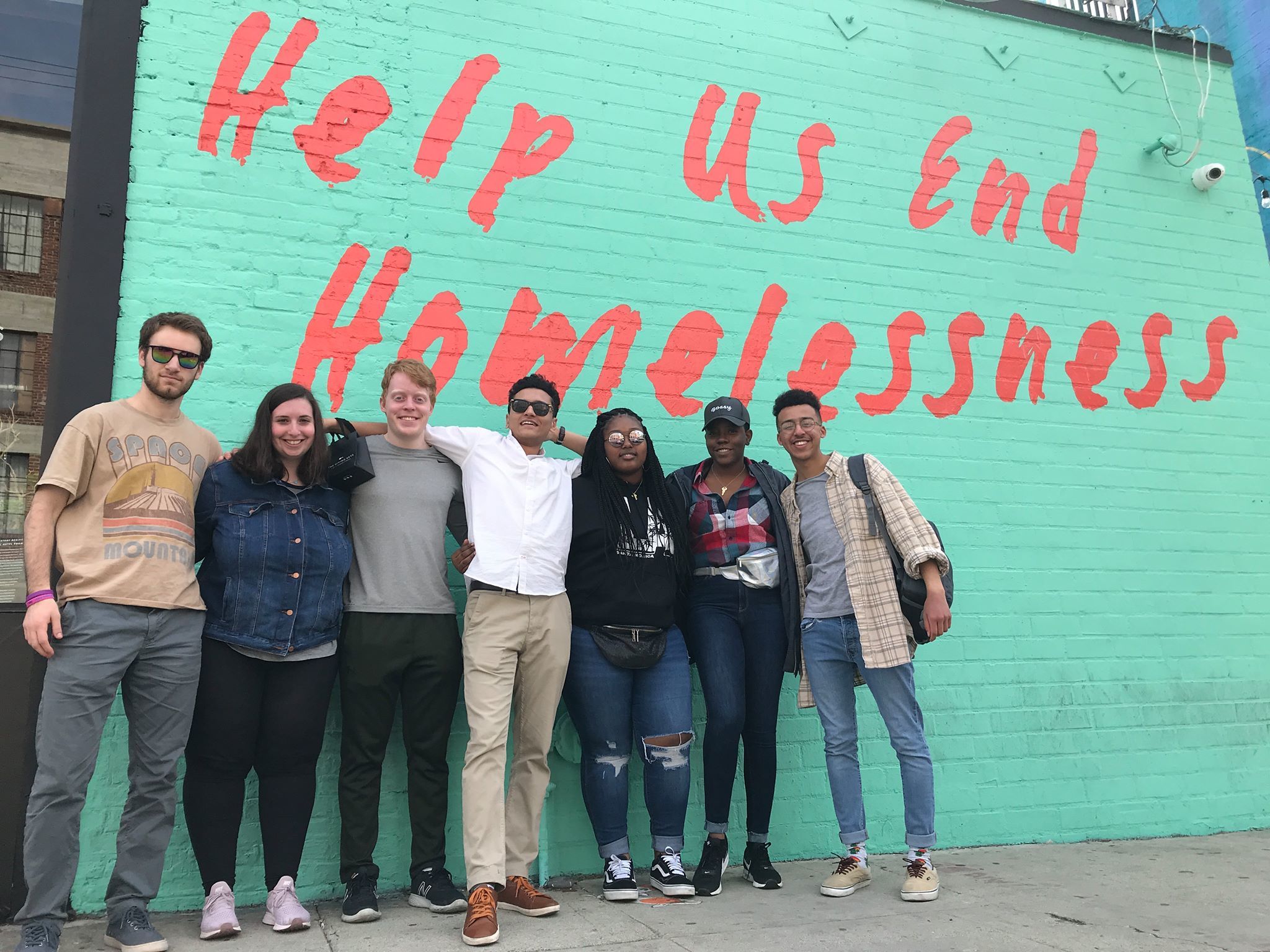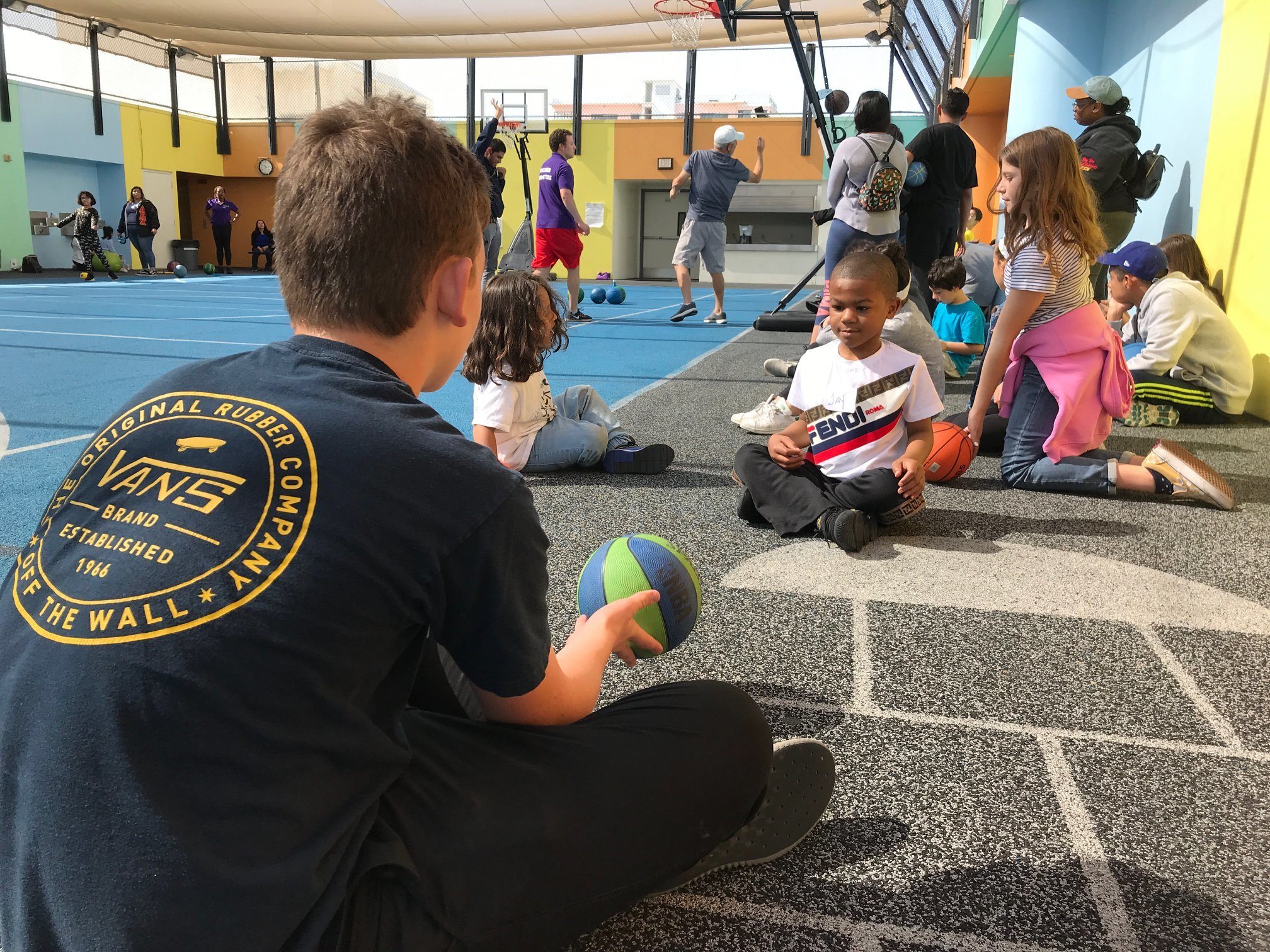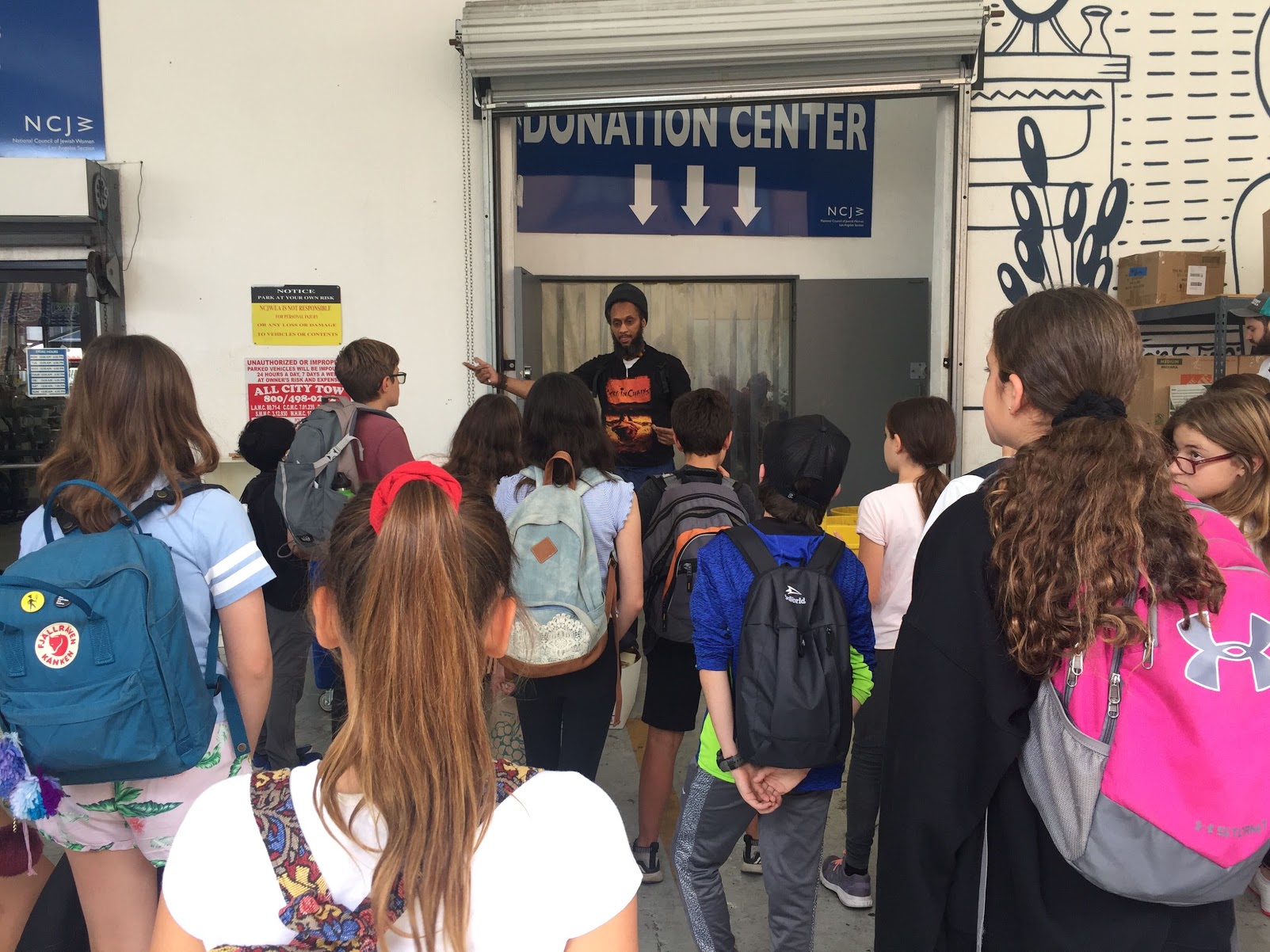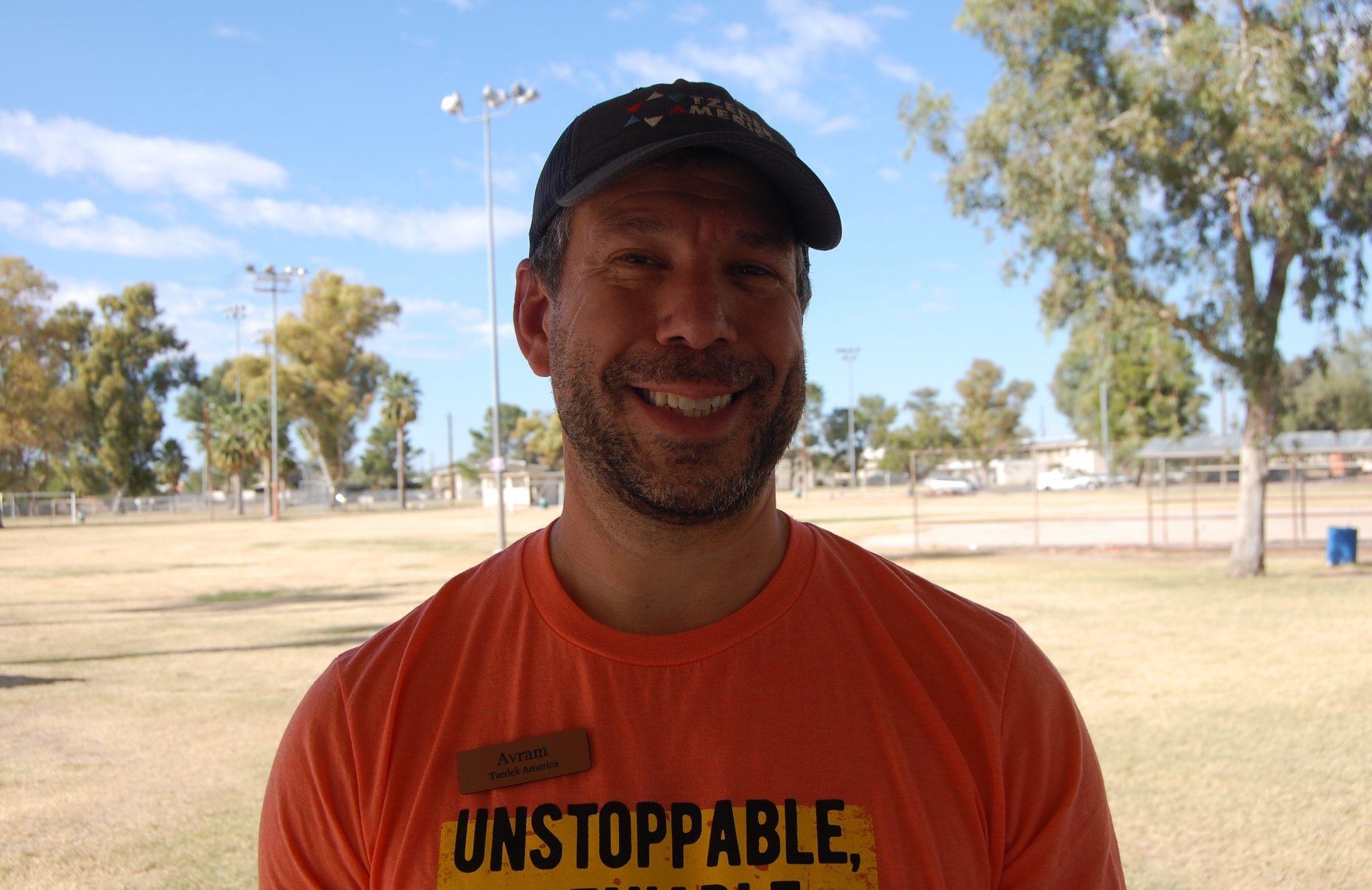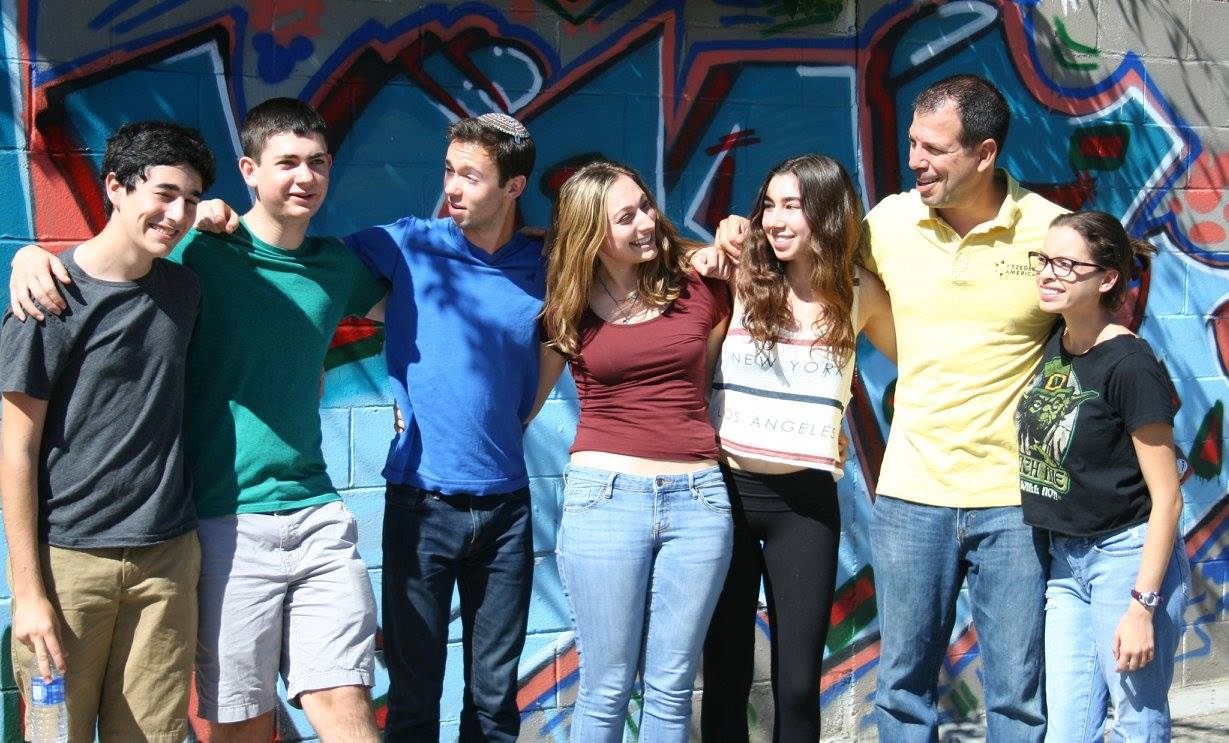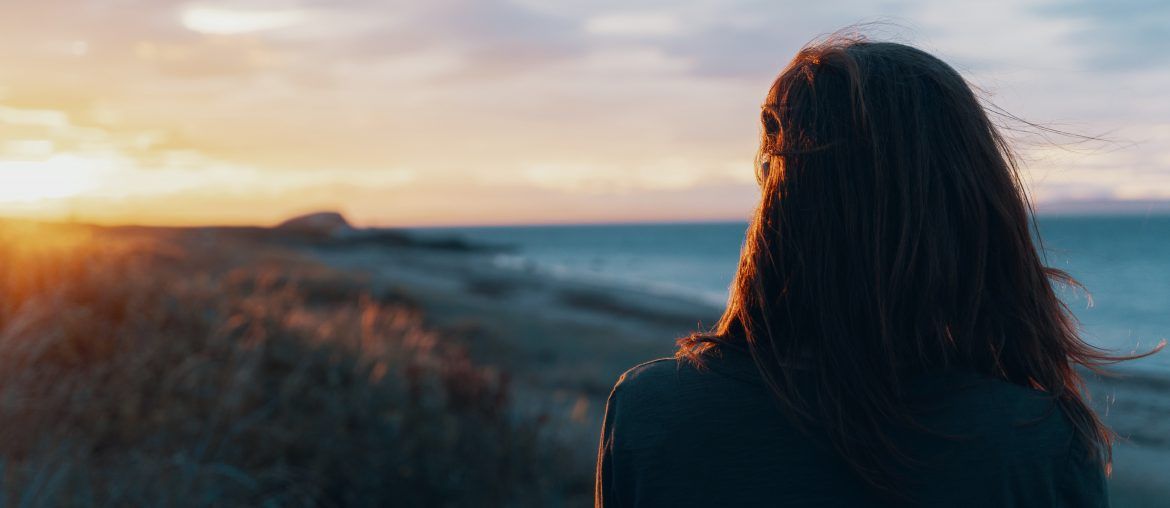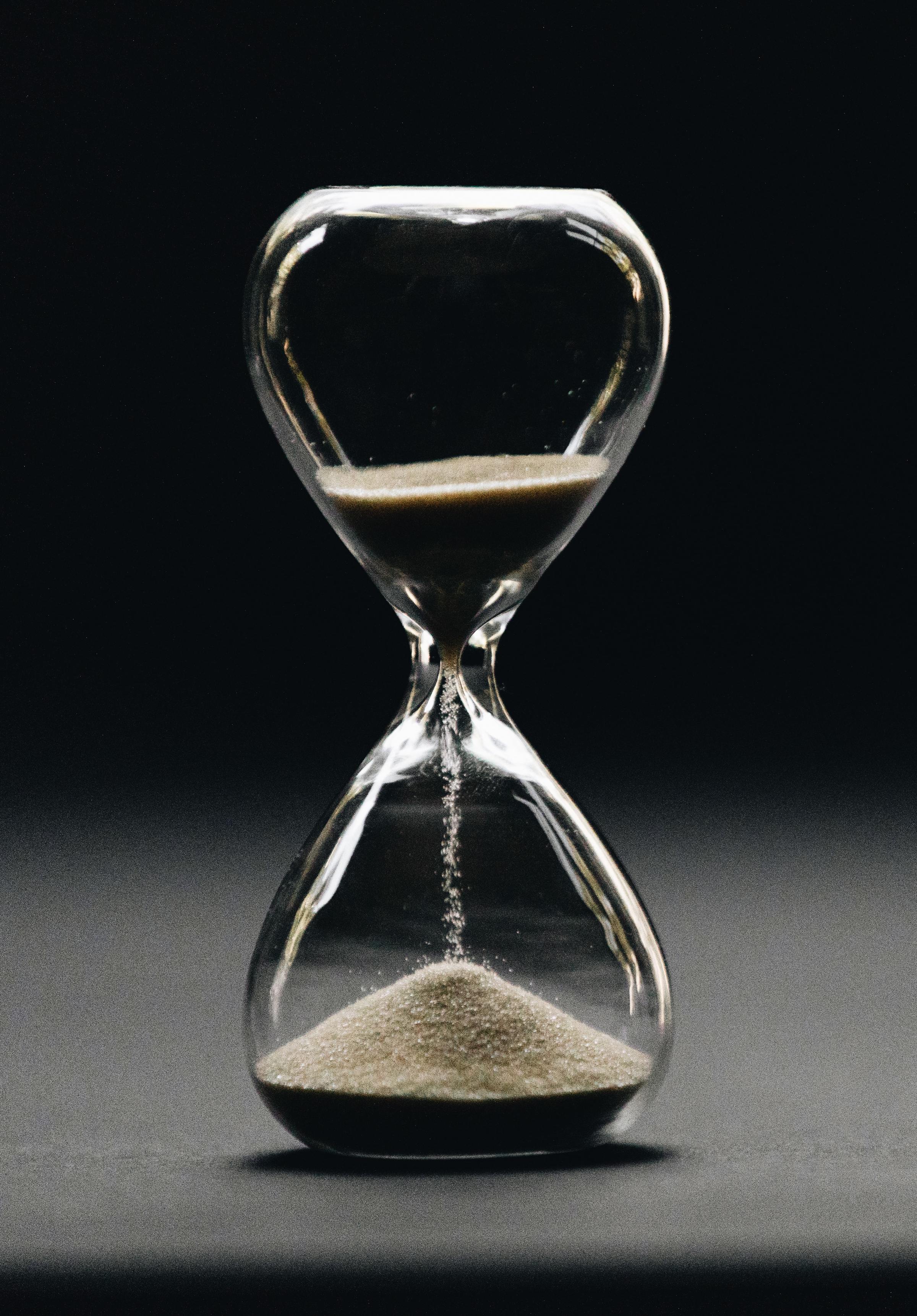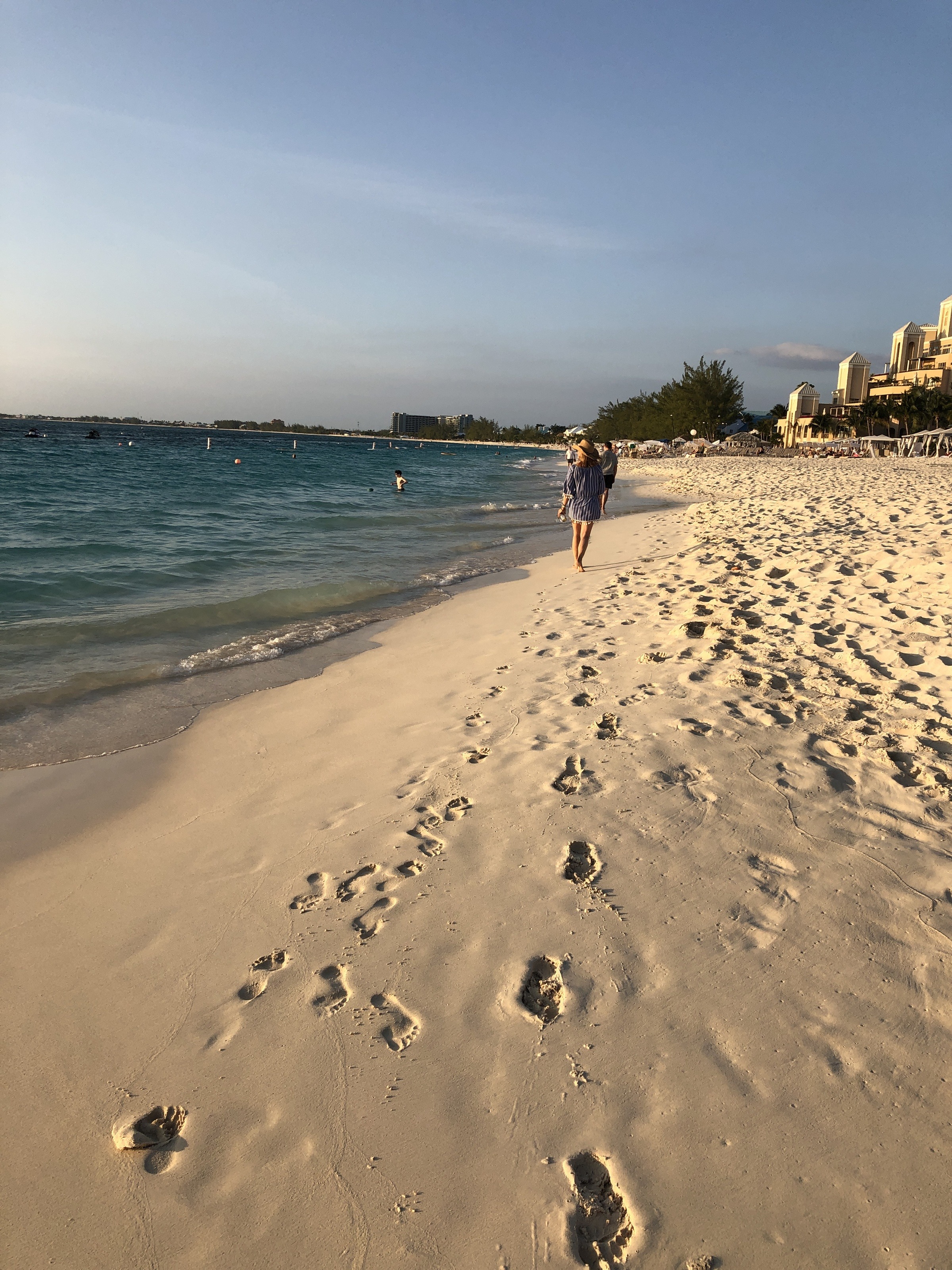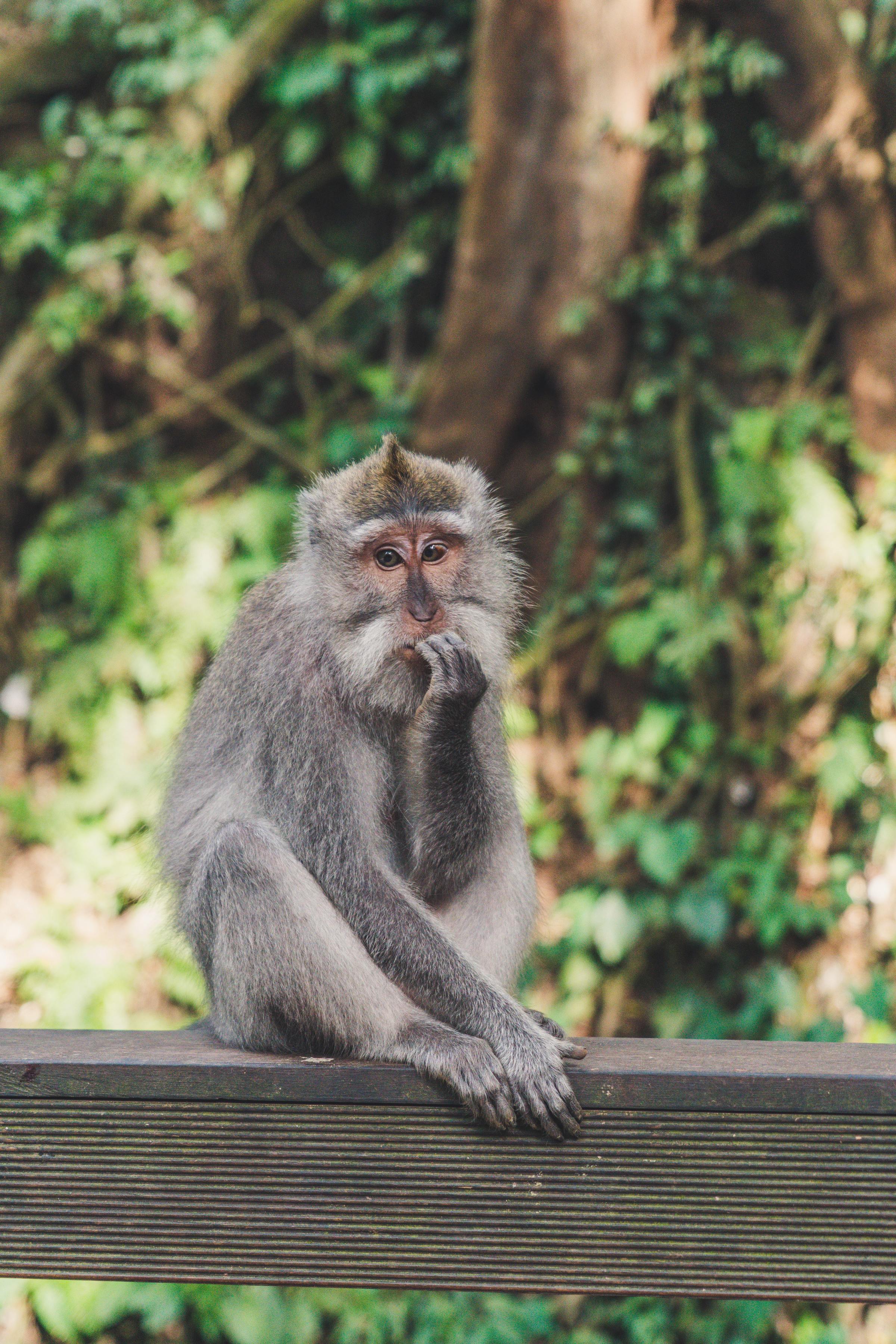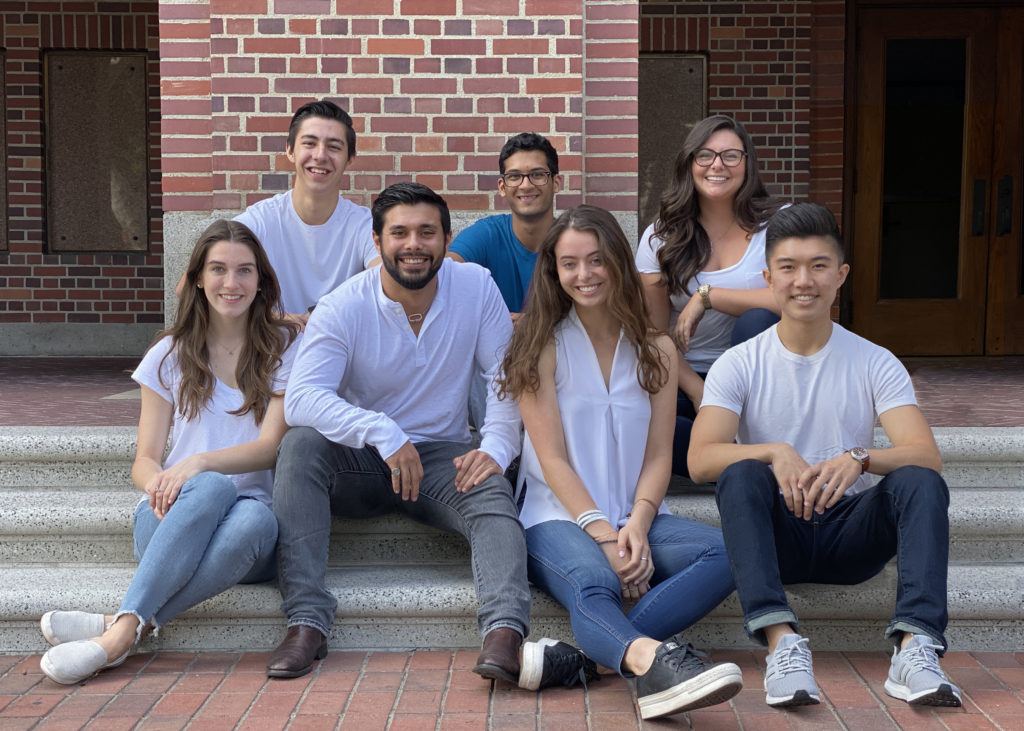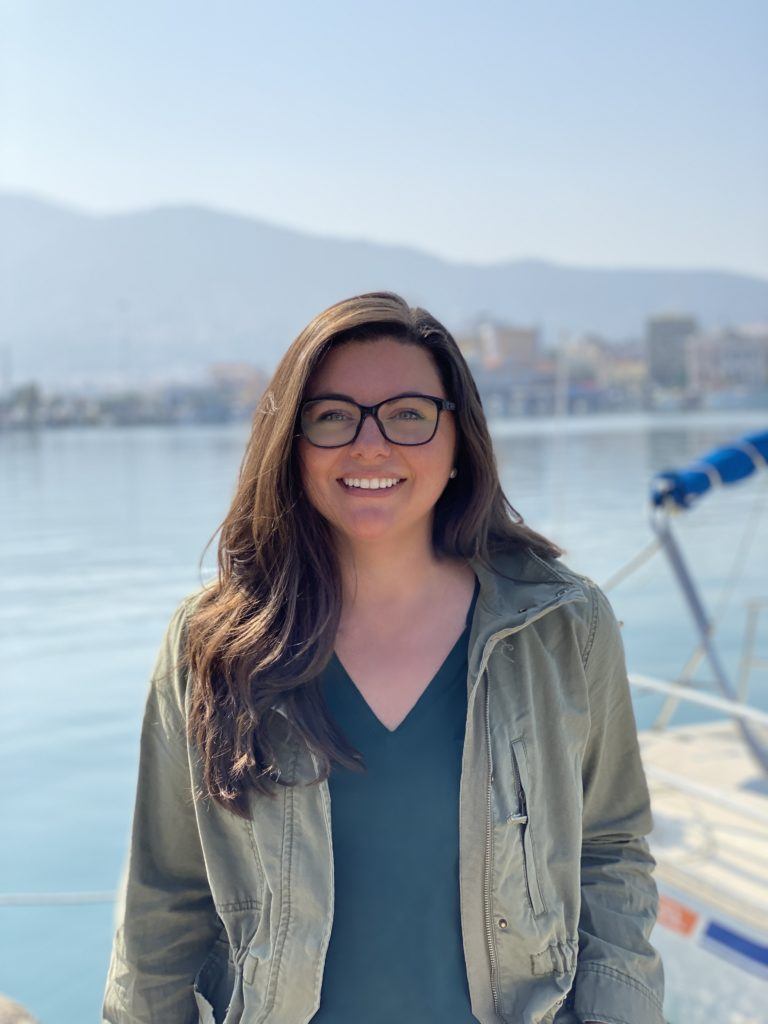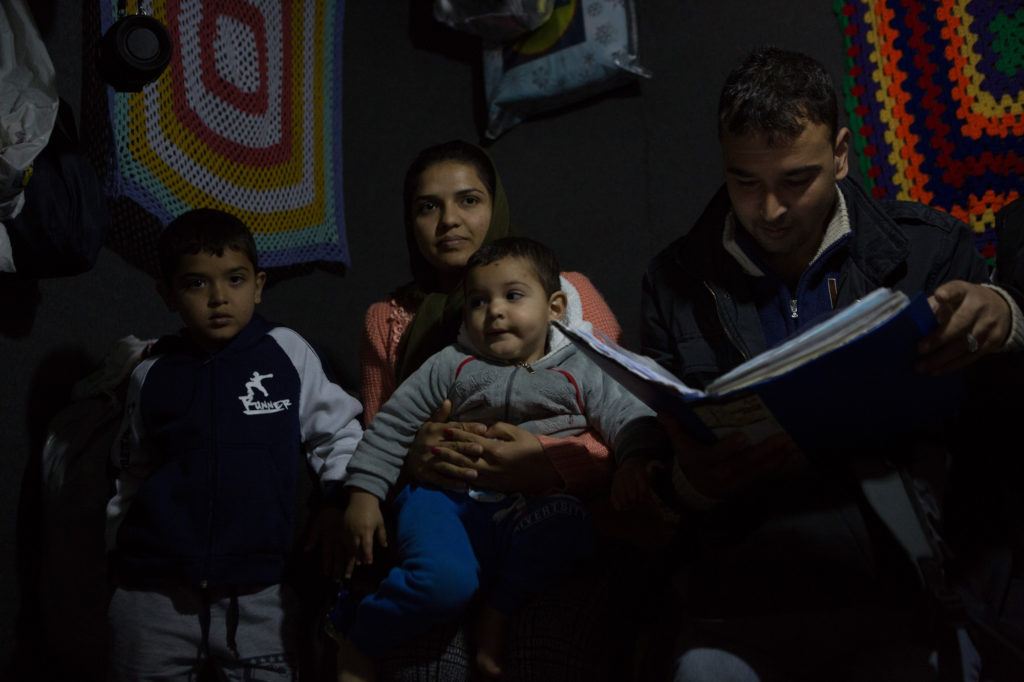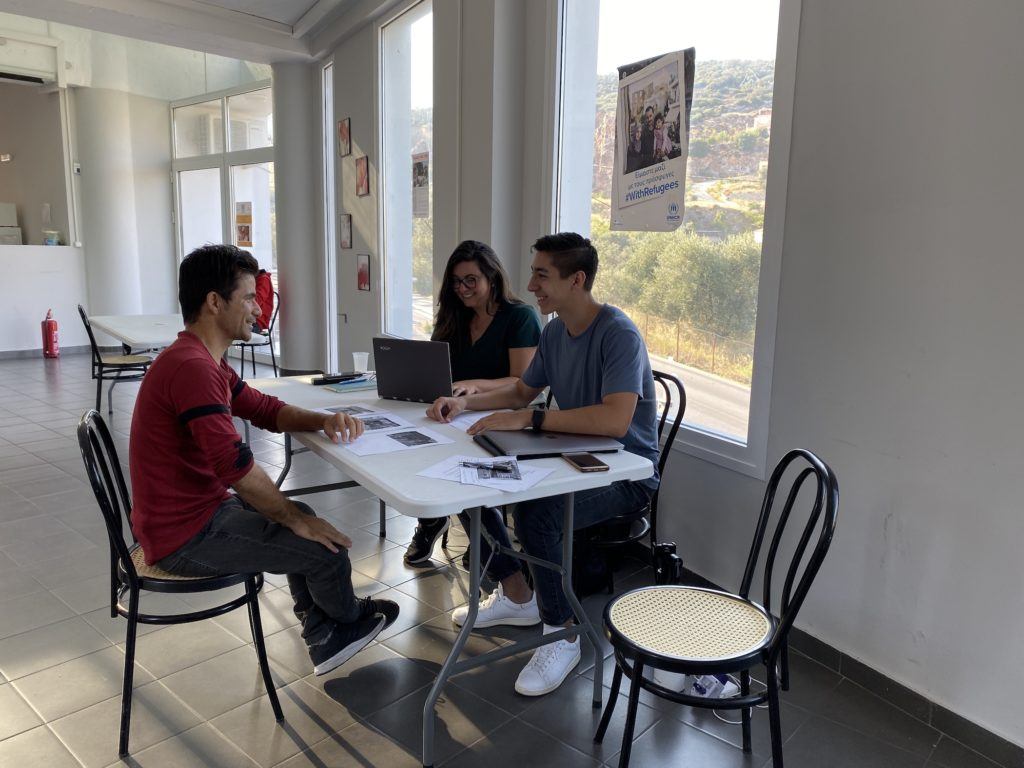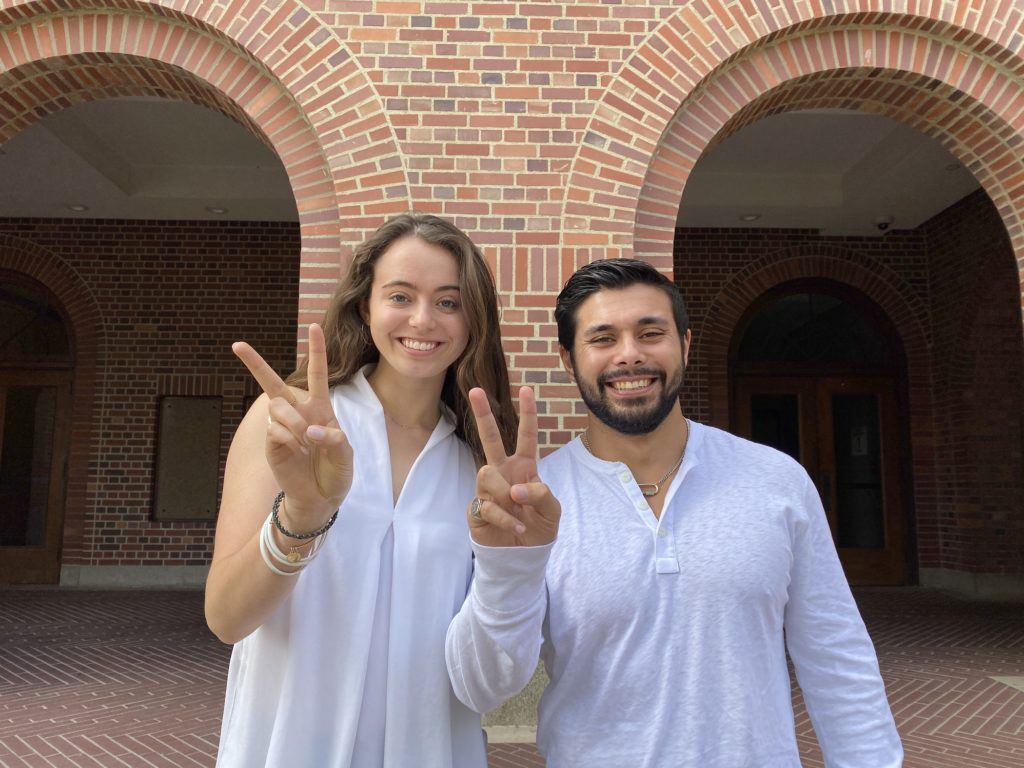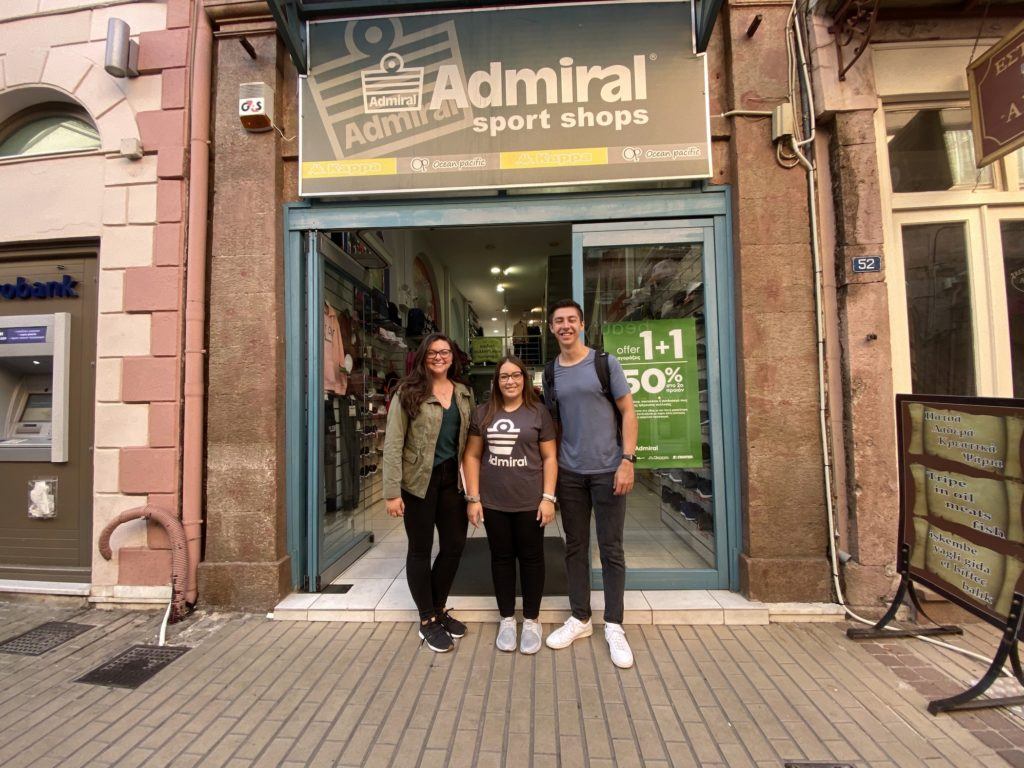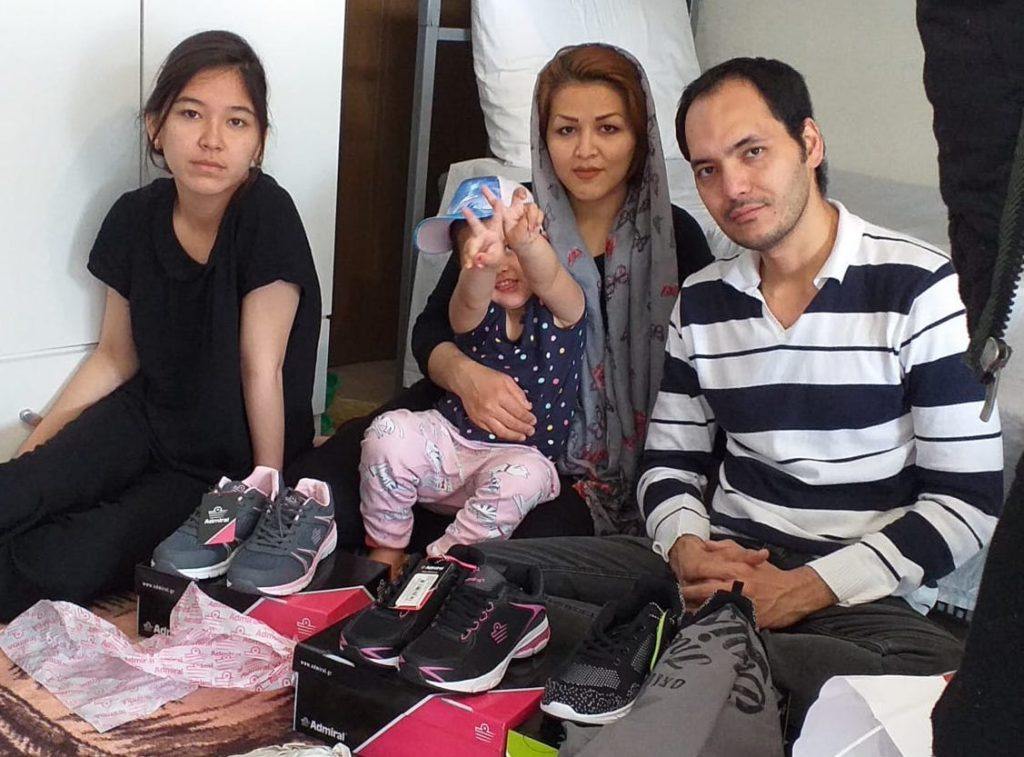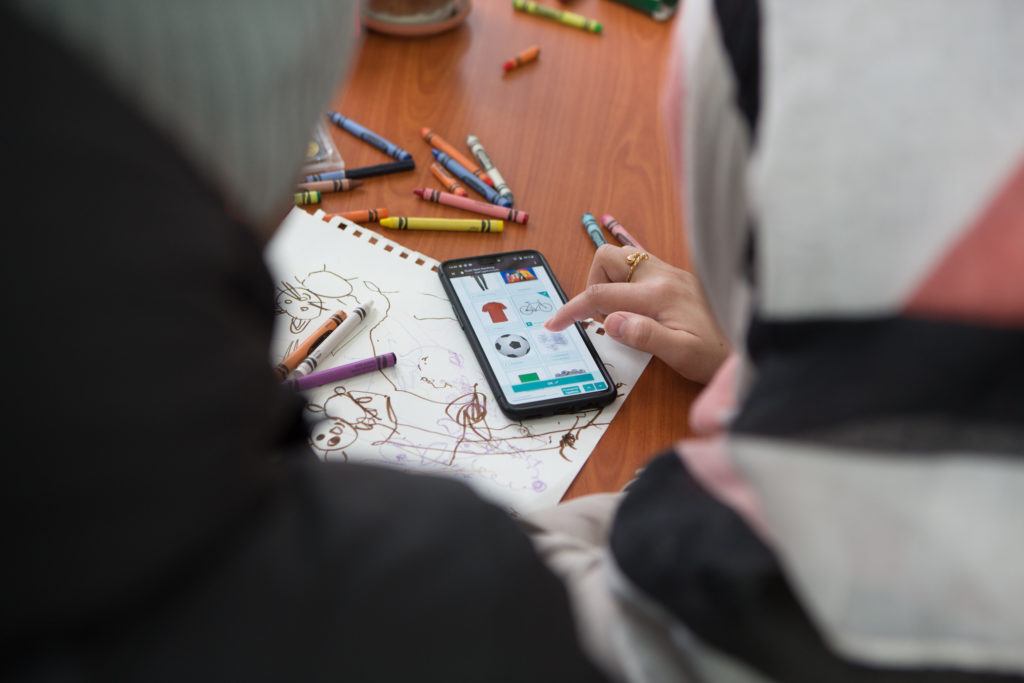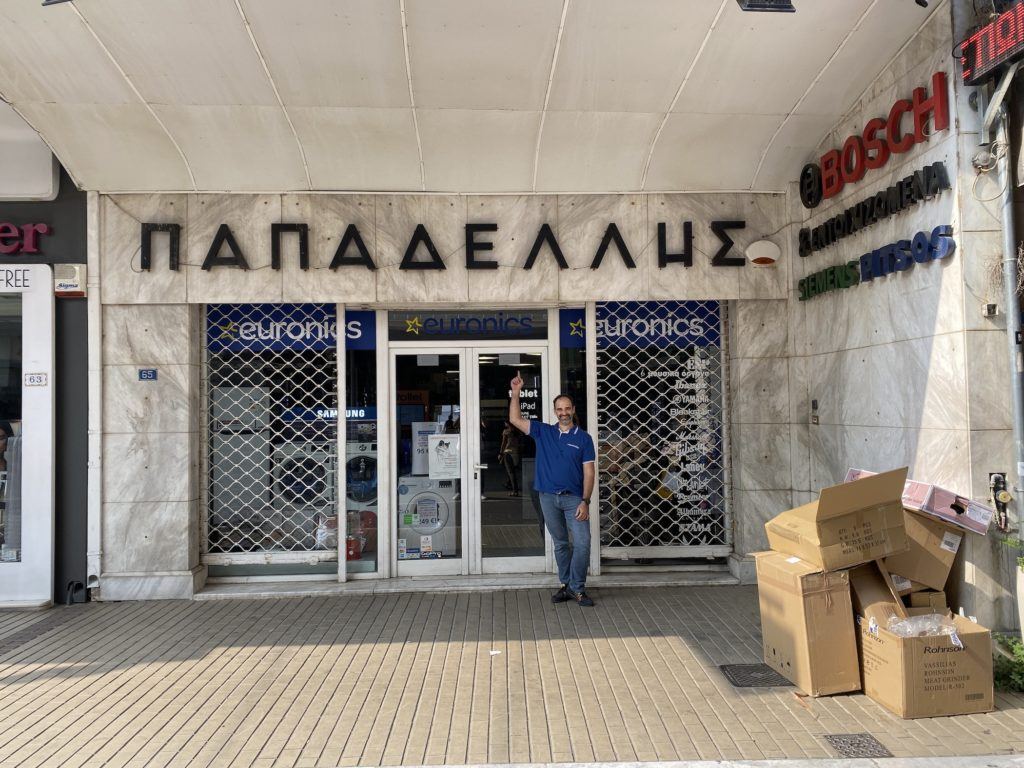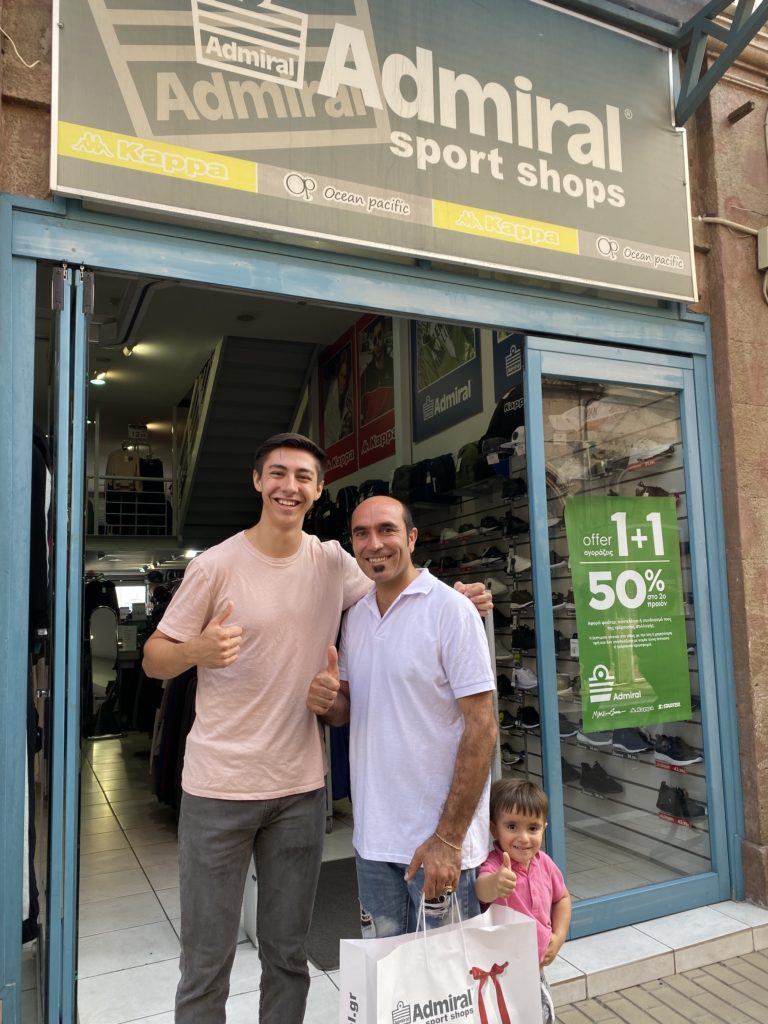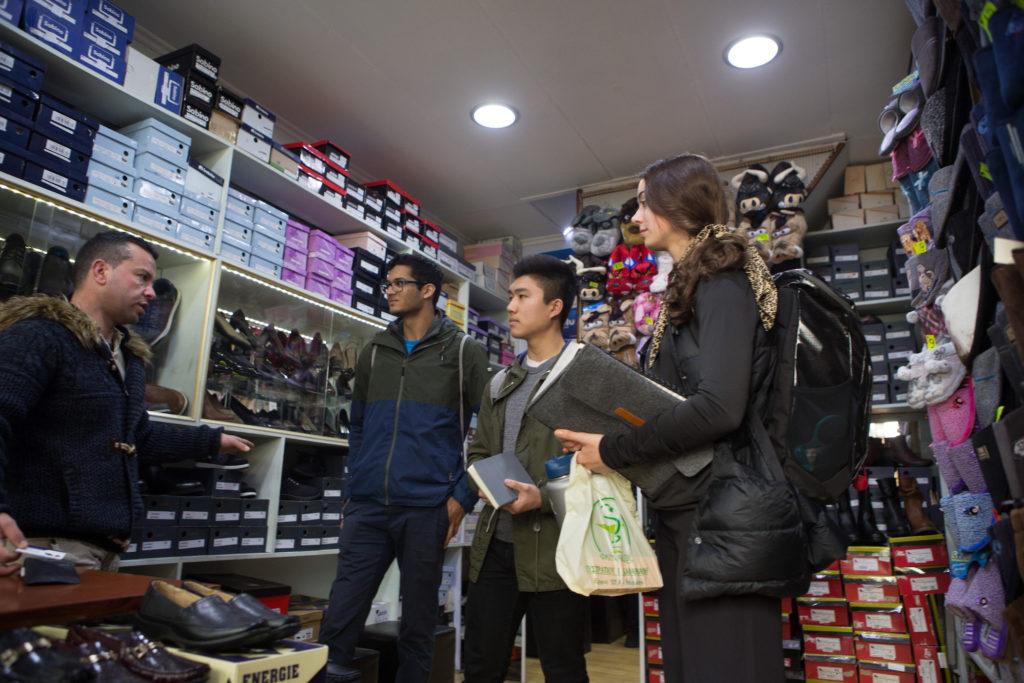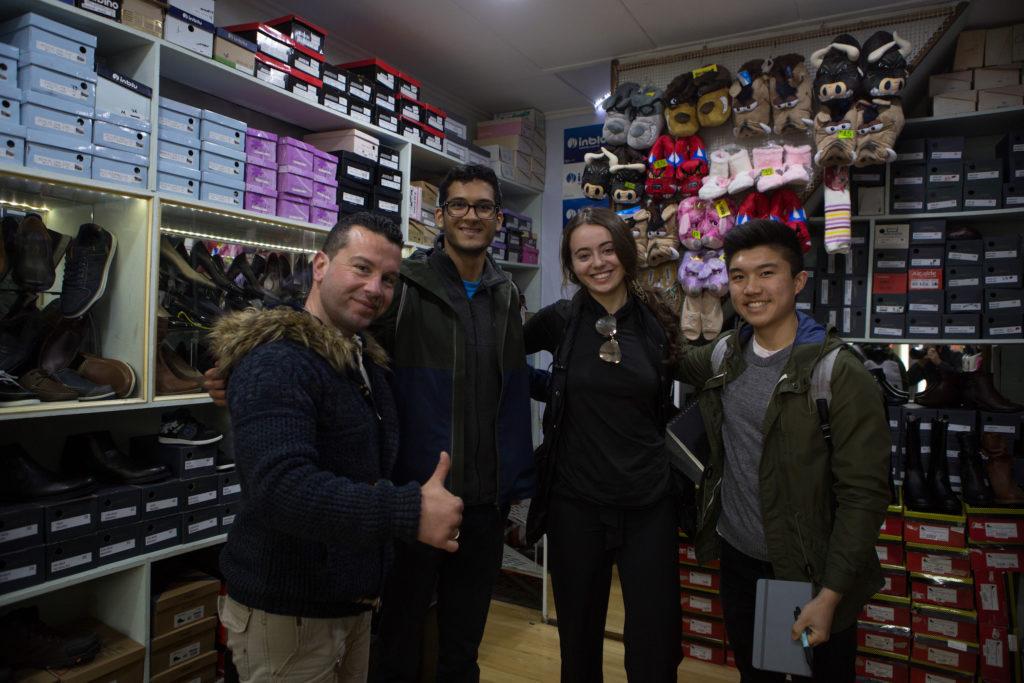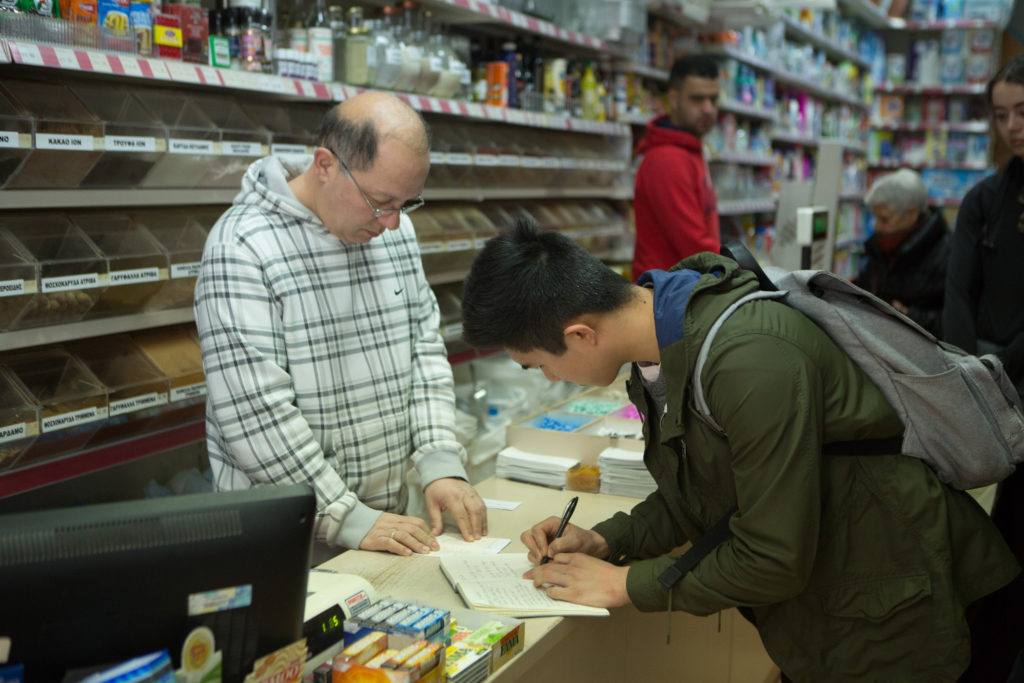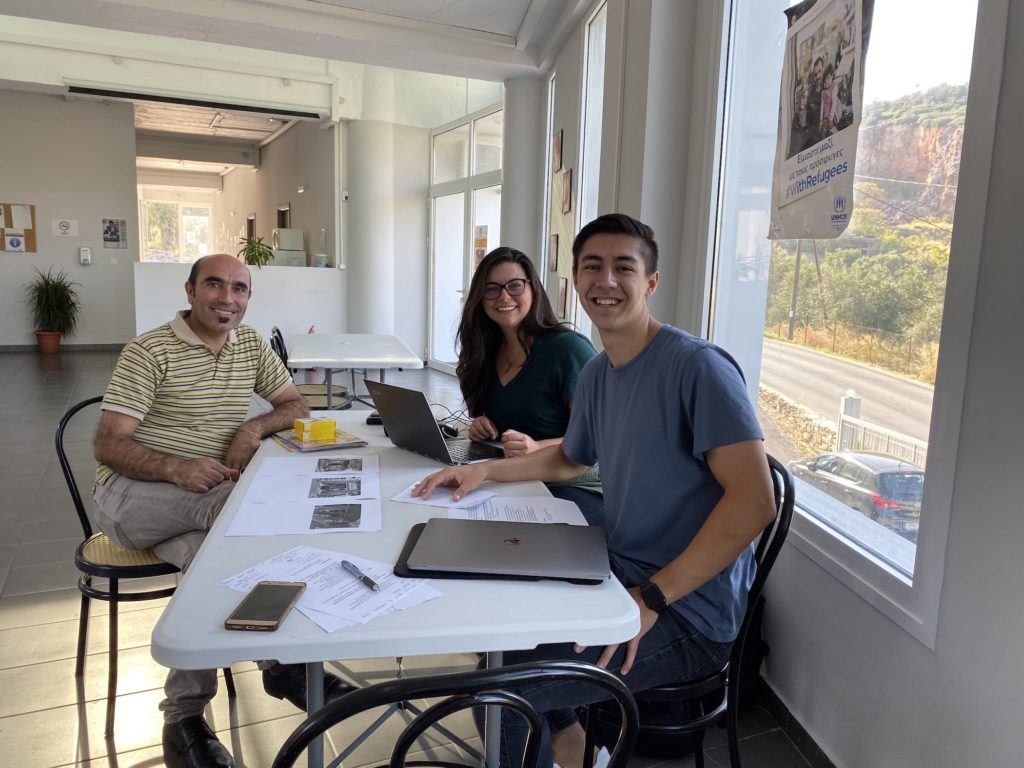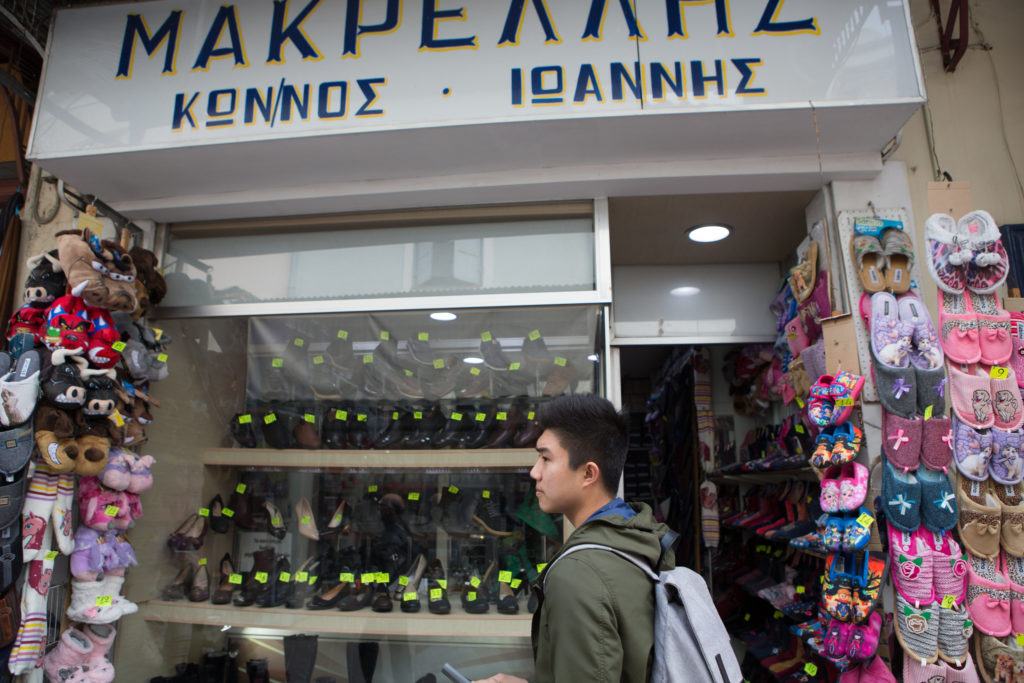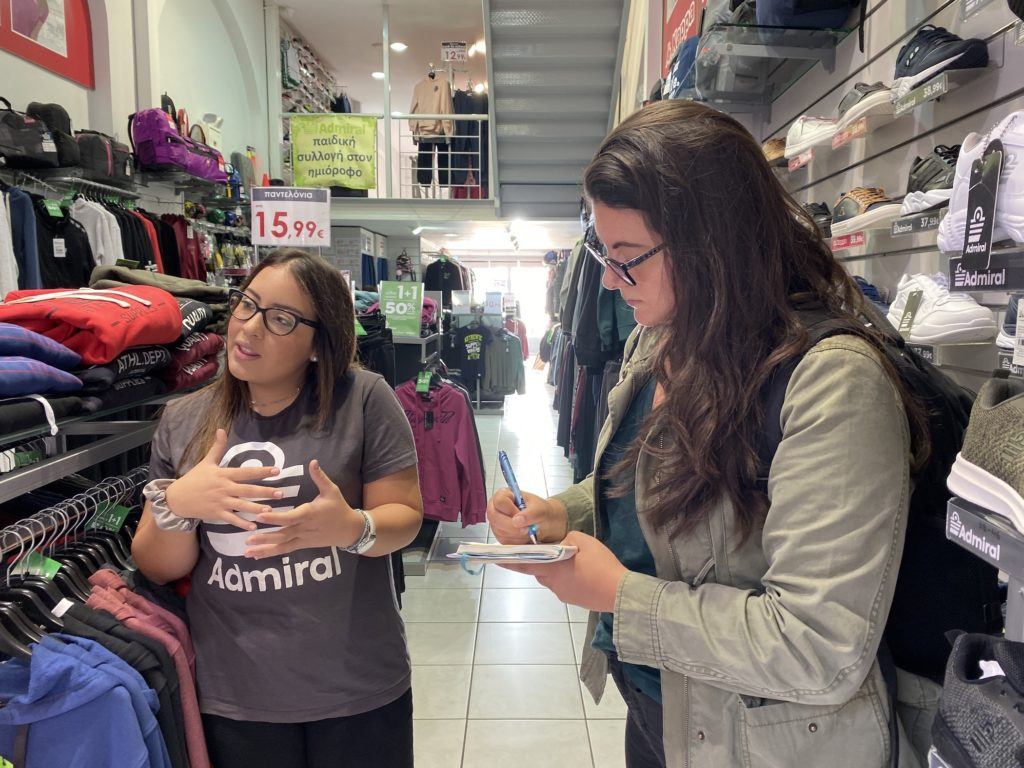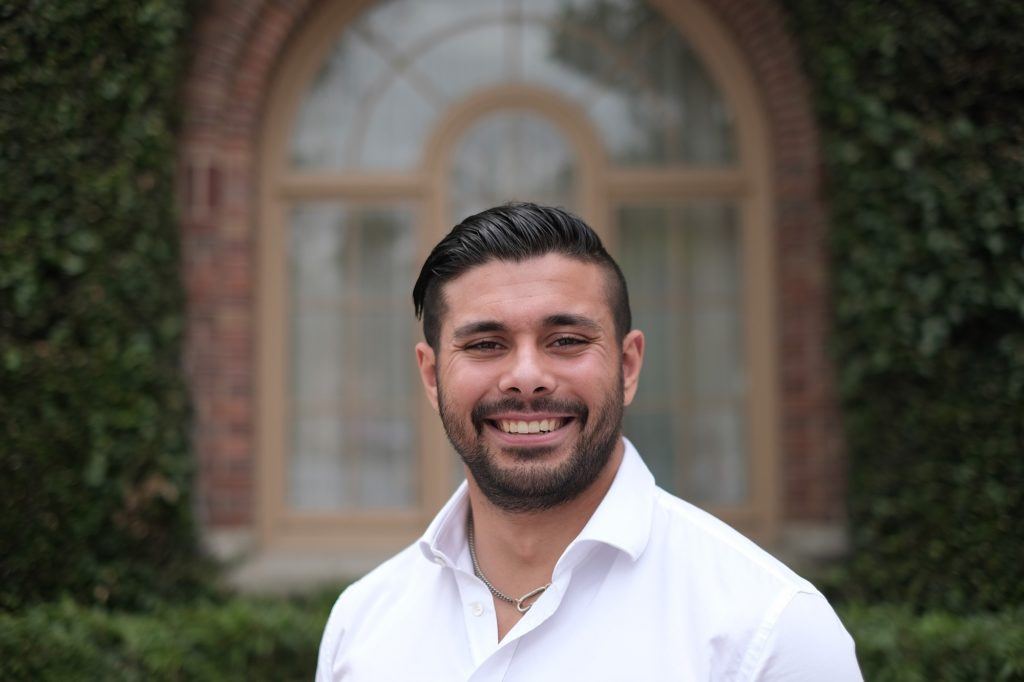Since this week is all about love and Valentines, it seems only fitting that today our guest is all about love. Her name is Deborah Koenigsberger and she is the founder of the nonprofit Hearts of Gold. So many of us pass the homeless in our cities and keep on walking. Not because we don’t care but because we are afraid and often feel helpless.
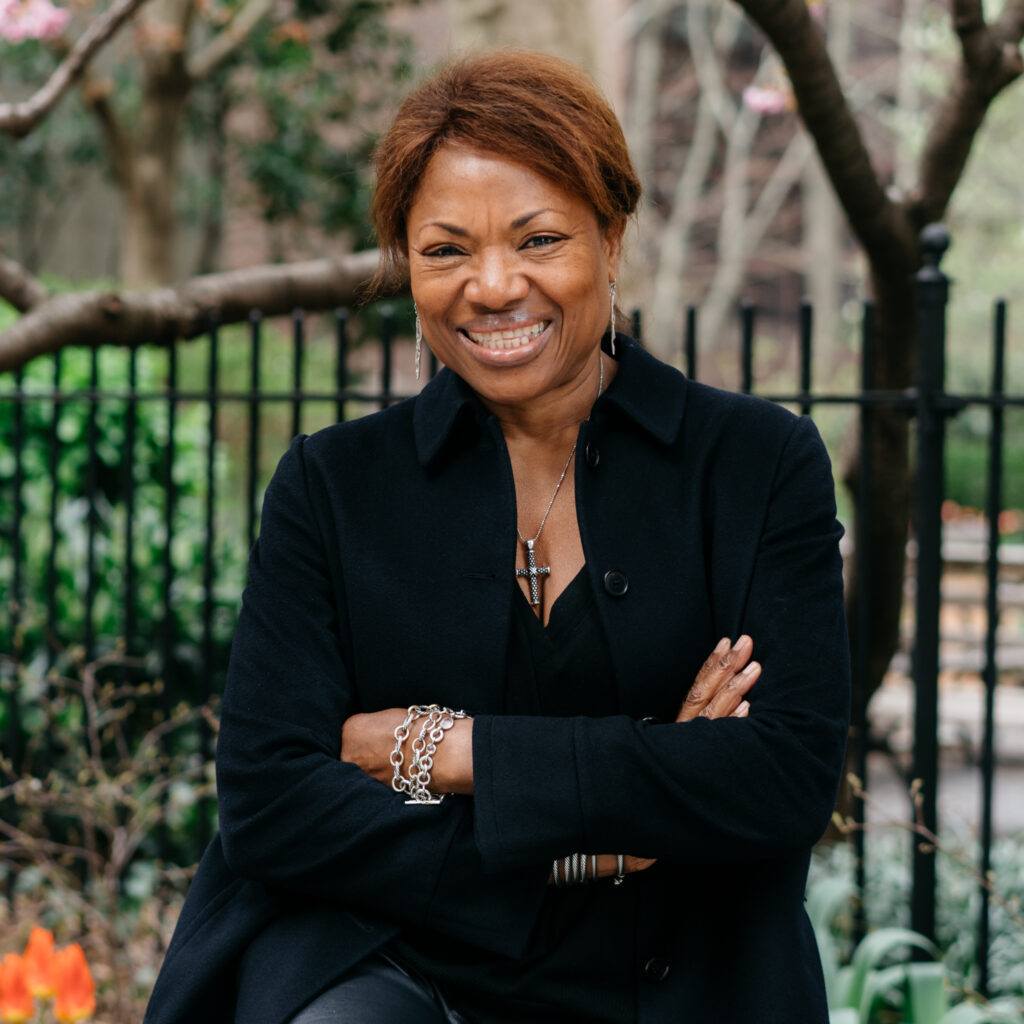
Not Deborah! As a young mother, she didn’t pass a homeless woman and child i the park, she stopped. When you hear here remarkable story about the impact one person can make, it will make you think differently. So join us for a remarkable conversation about love and action. Think of this as a belated Valentines Day gift to yourself!
Here are a few highlights from our conversation:
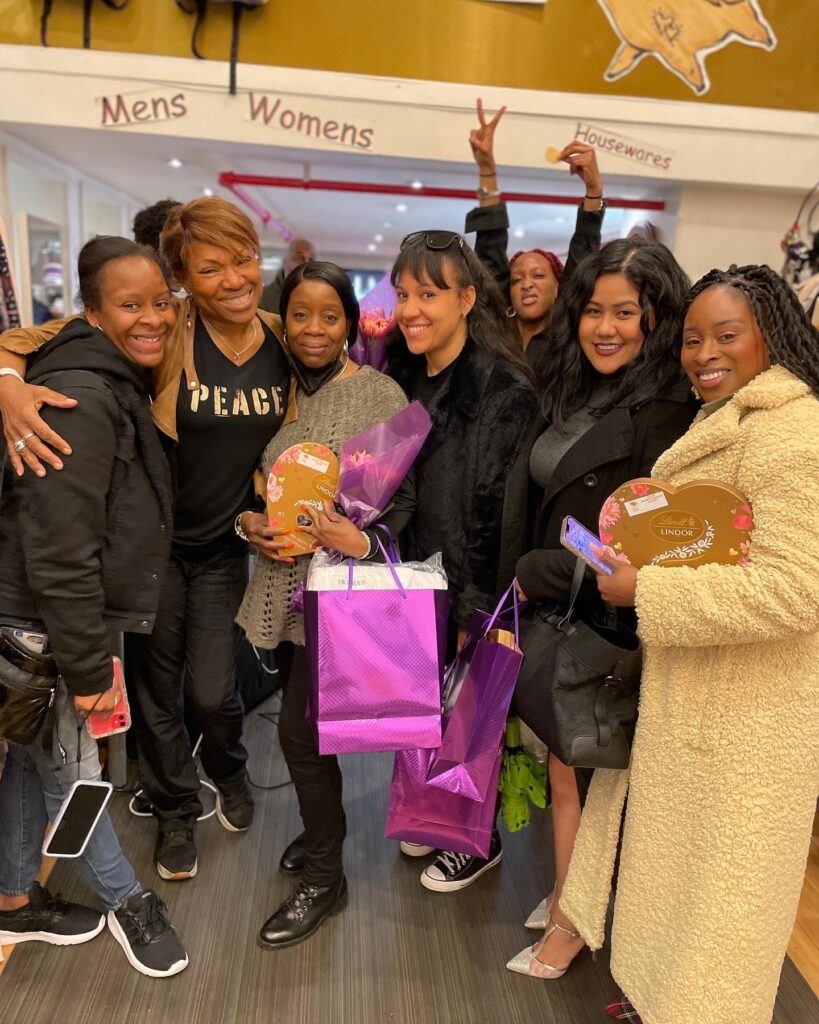
Charity Matters: Tell us a little about what Hearts of Gold does?
Deborah Koenigsberger: Hearts of Gold is a 28 year old nonprofit organization that supports homeless mothers and the children in shelters. We do that by what we call adopting shelters that house this demographic. So the shelters already exists. They are run by their city shelters or whomever entity owns the shelters and we go in with all the frills.
When we started it was really about making sure the moms and kids had something in their lives that would give them a good memory. So many of them coming out of domestic violence. We have programs with moms, and we have programs for the kids. Our goal is to basically help them get out of shelter life transition into housing and into permanent housing. We want them to just have a chance at what we all have, which is a normal life.
Charity Matters: What was the moment you knew you needed to act and start Hearts of Gold?
Deborah Koenigsberger: There isn’t one moment but three that all built on one another. The first, I would say is a Stevie Wonder song that started it all. Peace sign is the name of the album and the song is take the time out. the lyrics are, ” take the time out to love someone reach your arms out and touch someone, the king or some homeless one. We are one underneath the sun.” I was 12 when I heard it and it left a huge impact on me.
What I get from that song is that these people who are homeless on the streets, somebody gave birth to them. One day, there was a joy. Somewhere along the line, life took a left turn. And it doesn’t mean that it couldn’t happen to any of us. It just means that it didn’t happen to us, right? It happened to those people. So if we are not a part of the solution, if we don’t attempt to be a part of the solution, then we really are a part of the problem.
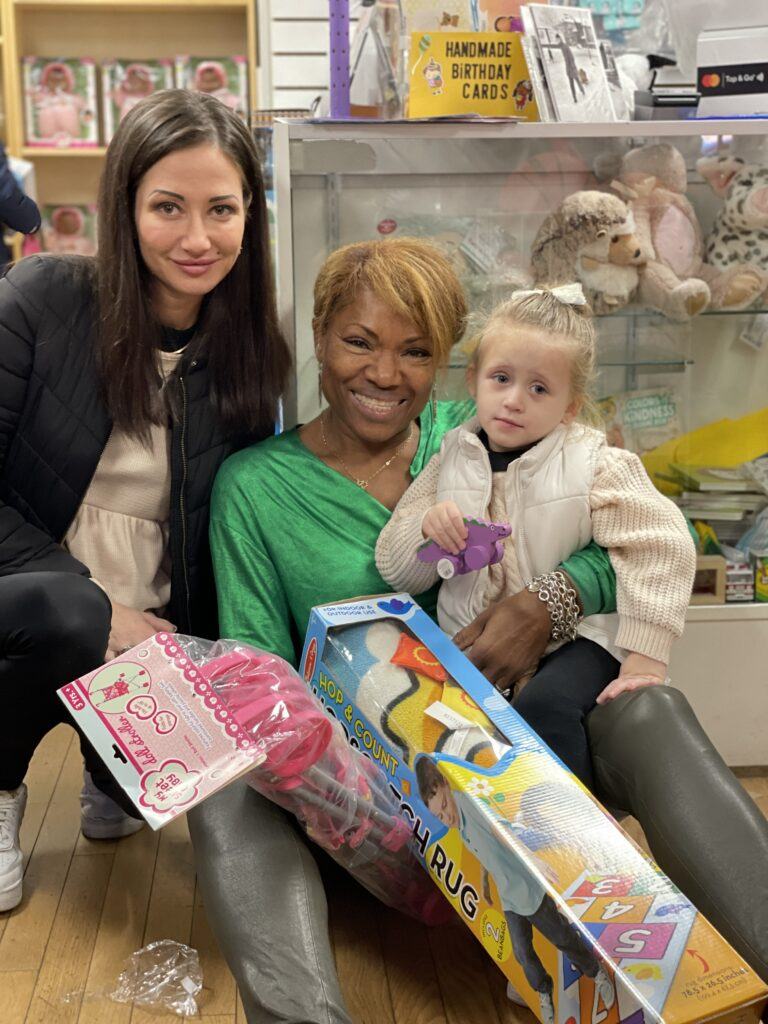
The second thing was on my way between work and home was a woman and her three year old daughter. They were sleeping in a cardboard box in the park. I walked through park and my boys were babies at the time. This was our neighborhood park. I finally approached her and had a conversation with her a few times. She told me that the shelter wasn’t safe and she’d rather take her chances on the streets. This went on for just a couple of weeks. And then she was gone. She disappeared but she motivates me every night. She powers my narrative because I know that out there.
The third part of the trifecta was when my oldest son was a baby, we met Bobby Brown. This was just before Bobby became Bobby Brown THE makeup artists. She was telling me that she did this volunteer work in a shelter where she would apply makeup to the moms teach them how to do makeup and give them product. I went with her to the shelter. I did styling Image Consulting so Bobby said, ” Why don’t you talk to the moms about just what to how to put themselves together. and I will do my makeup there.” So we did this workshop together and she would provide makeup artists.. But in that workshop, the moms came with their kids.
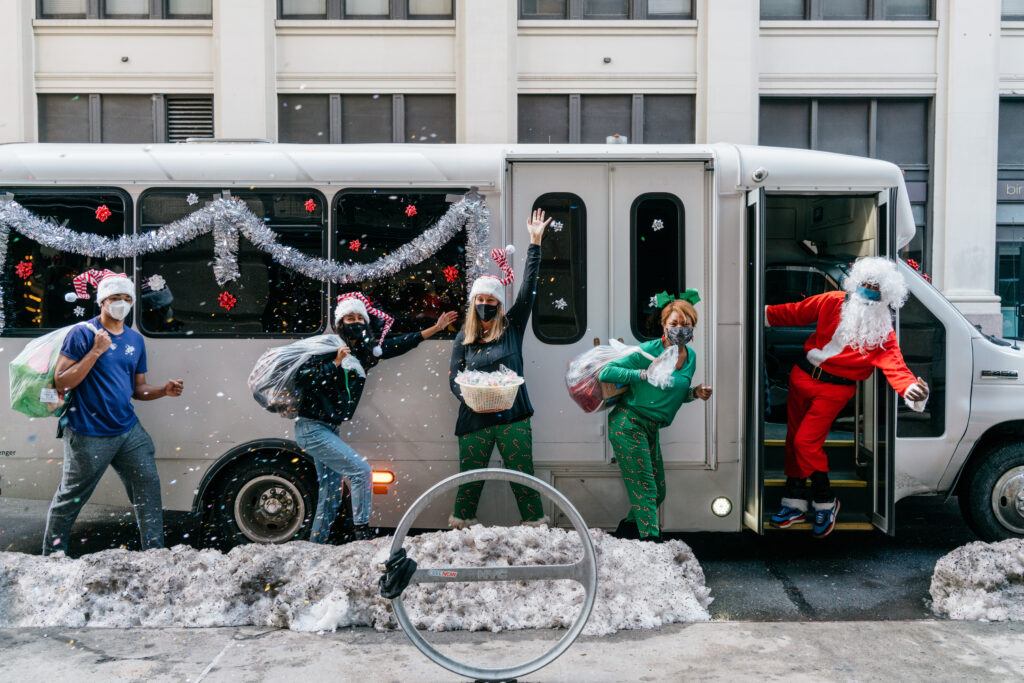
I decided that Christmas I literally went out and bought all these gifts for each child. At the time it was just me and that was 1994. I became a nonprofit, because when I approached the shelter saying I wanted to raise money for you to do these events. They said, “We can’t guarantee that that money will do that, which I appreciate it very much. Our challenge is that we have so many emergency things that happen we can’t guarantee the funds will go to your program.” So I said, “Okay, then I’m gonna do it myself.”
Charity Matters: What were some of your biggest challenges when you started out?
Deborah Koenigsberger: It’s particularly hard when you realize the problem that you are trying to solve is not solvable. And you certainly are not going to be the one to fix it. I believe in the starfish story. Although you couldn’t save every starfish on the beach, the one you threw back today got saved. That’s what saves me when I would fall down and feel that this is so frustrating. Then I would look at one of my moms, or get a phone call or a text from somebody, and they will say this happened today. And for me it’s just like joy.
You’re also realizing the best thing that we can realize as founders is that you have to get help. And you have to accept help to bring in people. So there are all these learning curves.
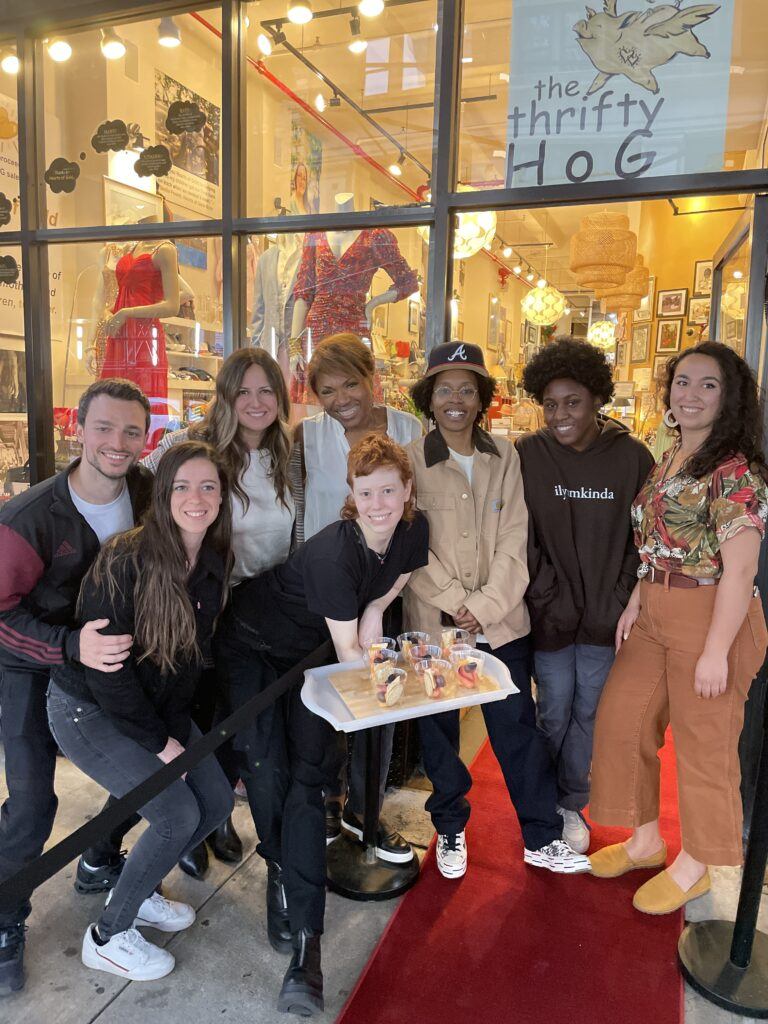
Charity Matters: What fuels you to keep doing this work?
Deborah Koenigsberger: There’s so many ways to educate people out of darkness. Darkness is ignorance. I’m an immigrant, from an immigrant family. The only thing that we know as immigrants is you gotta work. That’s the only reason why you’re here because work is gonna provide something better and different for you. So I know that it’s the American way. Work was what this country was built on.
Charity Matters: When do you know you have made a difference?
Deborah Koenigsberger: When I met Stevie Wonder in 2001, he said something to me, because I told him why started Hearts of Gold. Stevie said, ” My little song made you do all of that.” Like, do you have any idea? Oh world, and I just thought, that little song wasn’t just words on paper. It was such an invitation to open your heart and see something besides yourself.
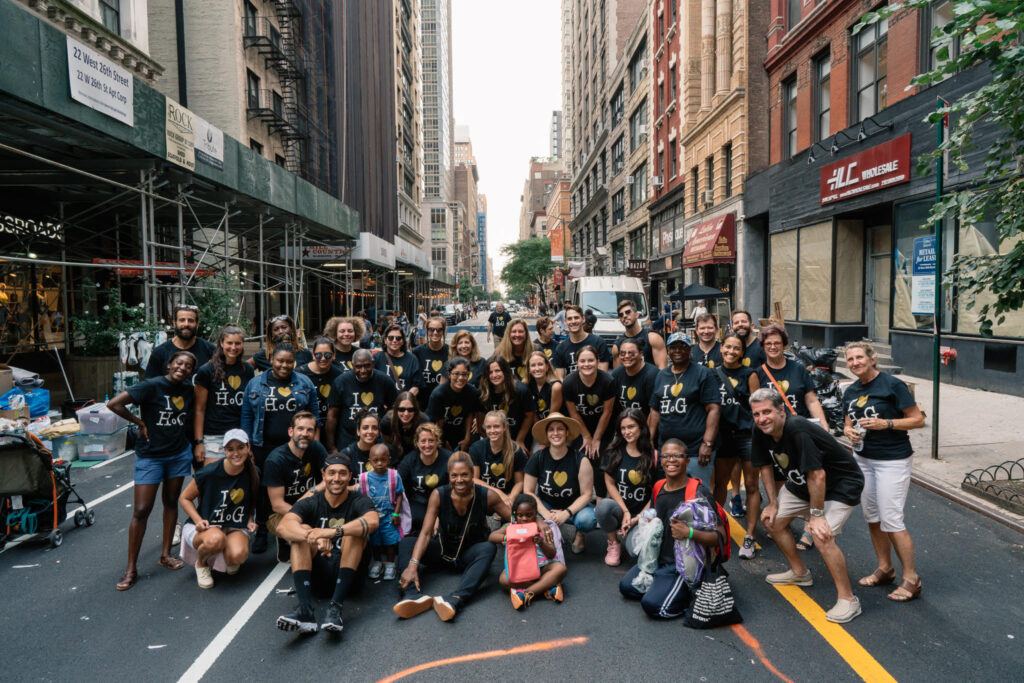
Charity Matters: Tell us what success you have had and what your impact has been?
Deborah Koenigsberger: Over 37,500 moms and kids helped her impacted children who were the first one in their entire family line to go to college. This Christmas we bought, wrapped and distributed over 5000 toys. I think we should understand that what we’re doing is bigger than all of us and call in our communities.
If you are blessed enough, if you are given the gift of sharing yourself with somebody else in a way that will have impact and change something, you’re blessed.
Charity Matters: How has this journey changed you?
Deborah Koenigsberger: I’ve matured a lot. I have found and met incredible people along the way who have taught me invaluable lessons. And I’ve learned invaluable lessons from people who weren’t really trying to teach me anything, but I learned it anyway.
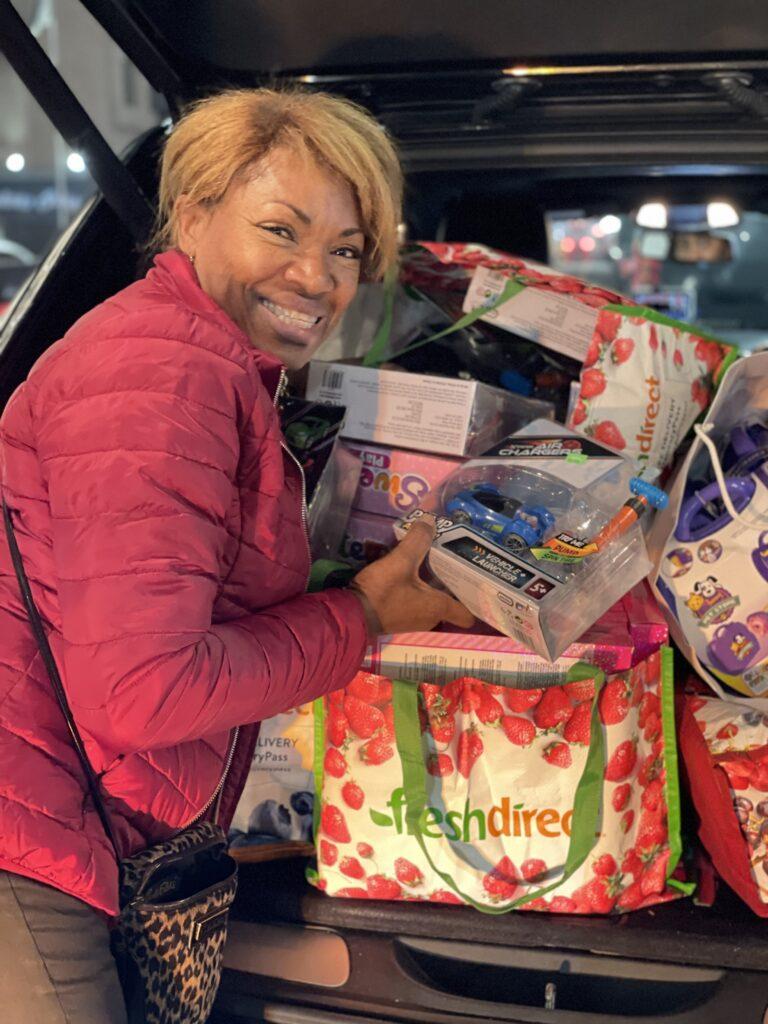
Charity Matters: What life lessons have you learned from this experience?
Deborah Koenigsberger: I learned that a single human being can really affect major change and it all starts with an idea. I think of myself as a vessel. And I think that I am just there because I have that kind of energy. We don’t all have the same energy or the same way of thinking about things. Some people have the talent to help you create something, and that’s magical, some people have treasure and that is immeasurable. Now you have time, talent, treasure, and everybody has a different one of those that they can bring to your to your cause. One of the lessons that I think is really important that I’ve learned is that there are so many kind people out there in the world.
When we lift one we lift all.
What I’ve learned is that you can’t save all the starfishes even if you have all the resources in the world because it’s just not possible. But what you can do is get a whole bunch of more people on that beach. God of the things I’ve learned a lot, there’s so many ways to love people.
If you’re at the end of your story and you could write that one person’s life was significantly impacted by your being here, walking the earth leaving a footprint.. Then for me, I am full. I am full.
CHARITY MATTERS.
YOUR REFERRAL IS THE GREATEST COMPLIMENT, IF YOU ARE SO MOVED OR INSPIRED, WE WOULD LOVE YOU TO SHARE AND INSPIRE ANOTHER. If you enjoyed today’s episode, please connect with us:
- www.Charity-Matters.com
- On IG @Charitymatters
- Post a screenshot & key takeaway on your IG story and tag me @heidijohnsonoffical and @Charitymatters so we can repost you.
- Leave a positive review on Apple Podcasts
- Subscribe to new episodes each week!
Copyright © 2023 Charity Matters. This article may not be reproduced without explicit written permission; if you are not reading this in your newsreader, the site you are viewing is illegally infringing our copyright. We would be grateful if you contact us.

